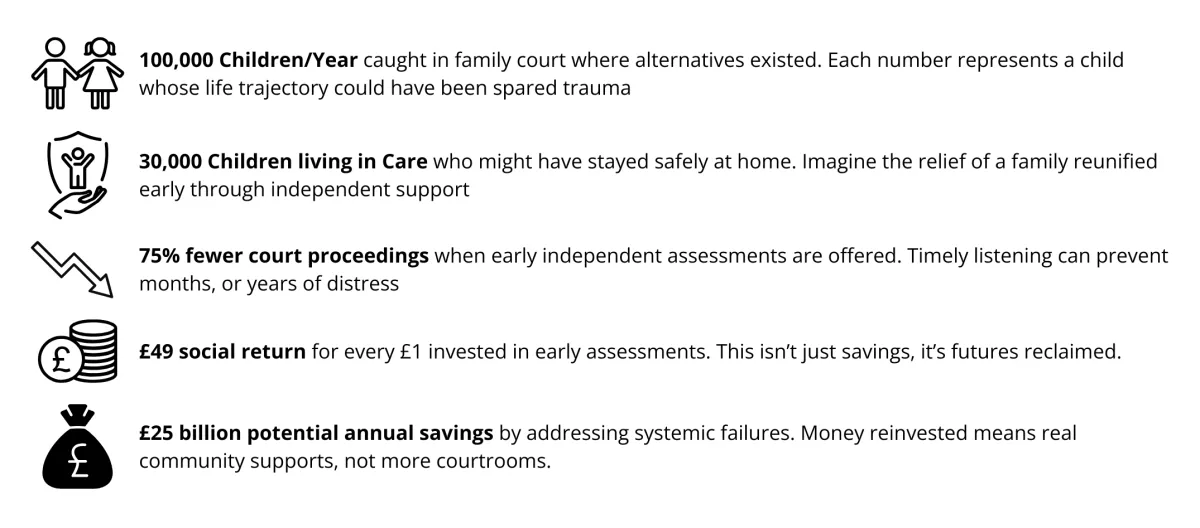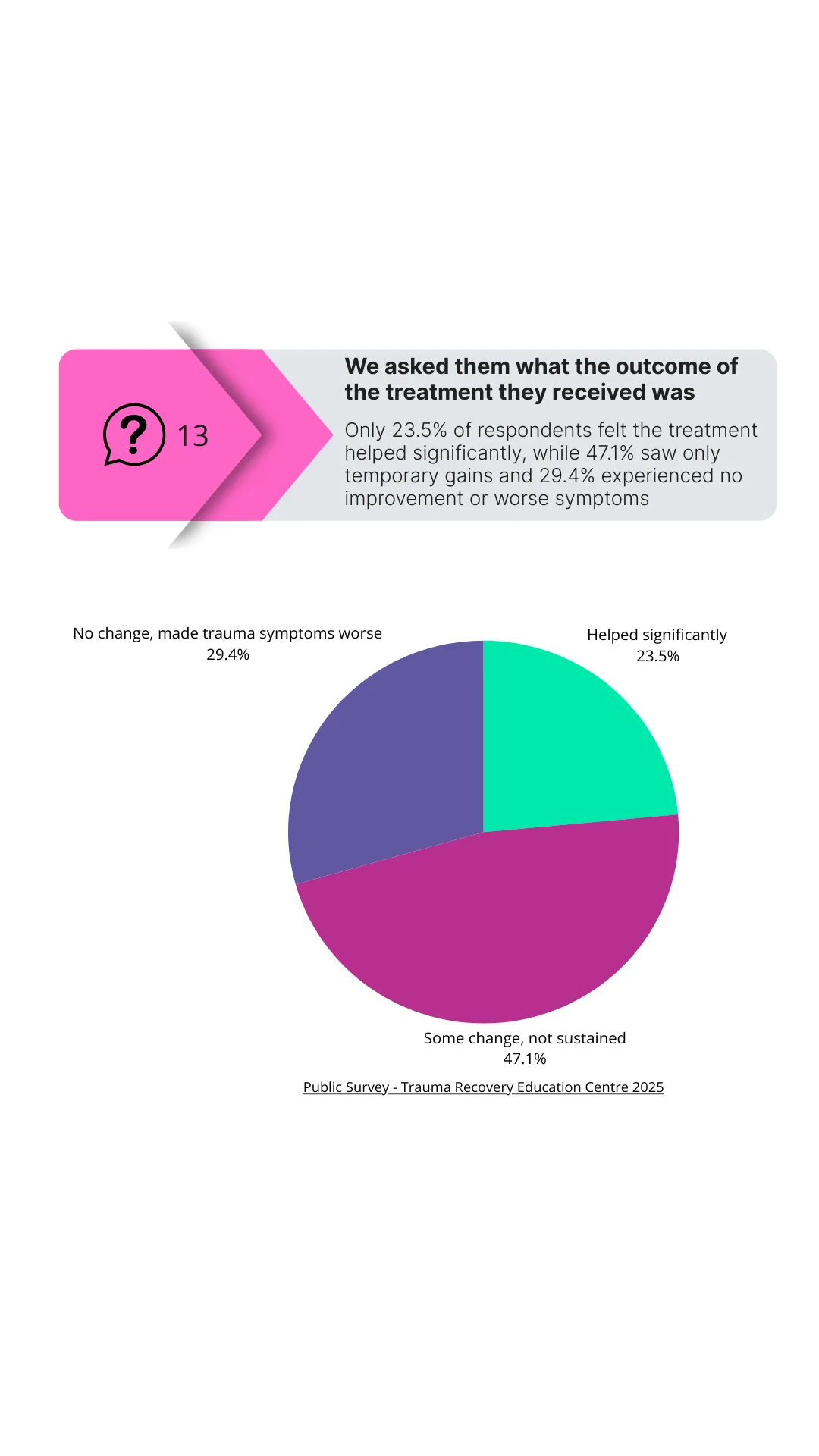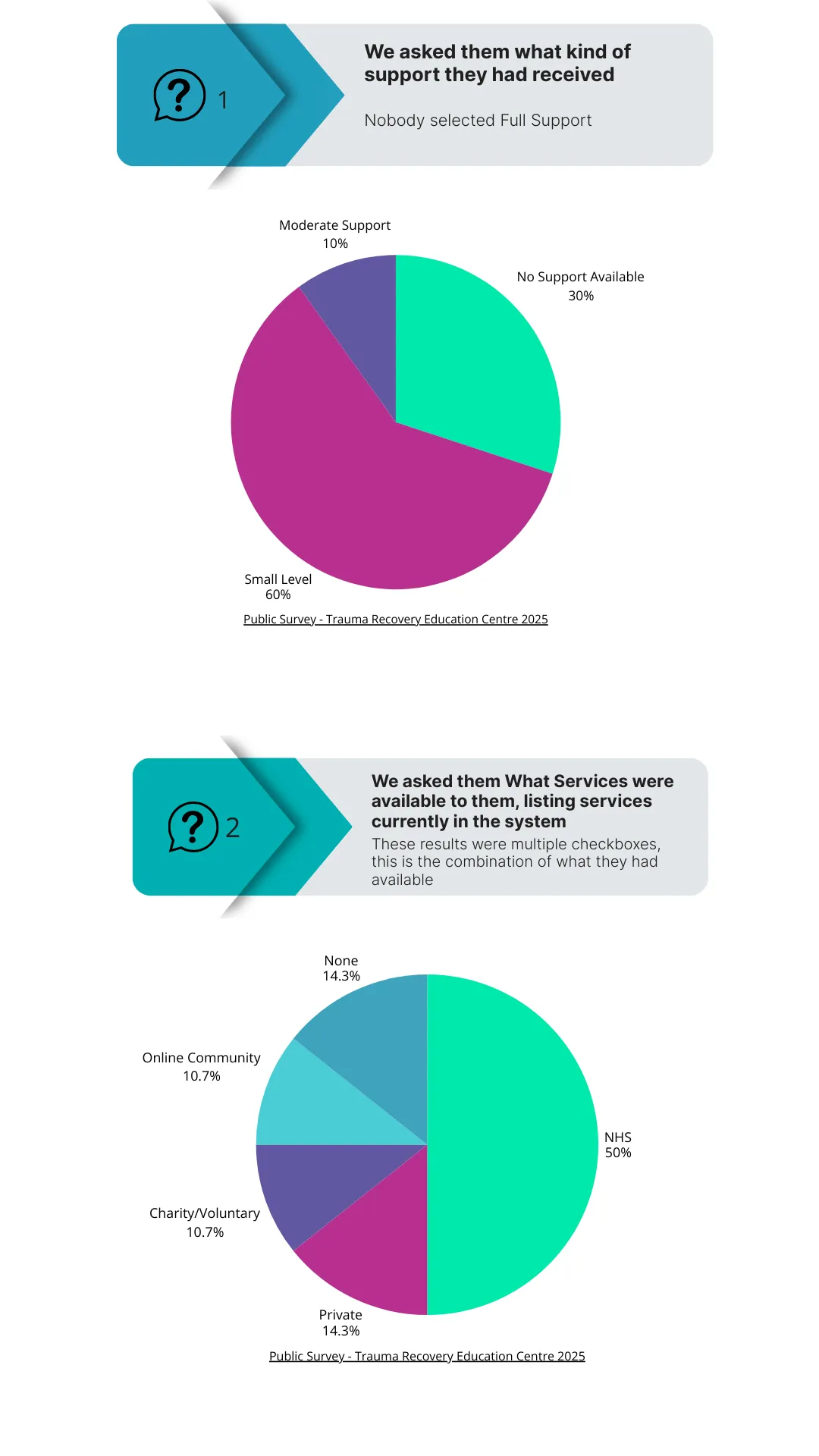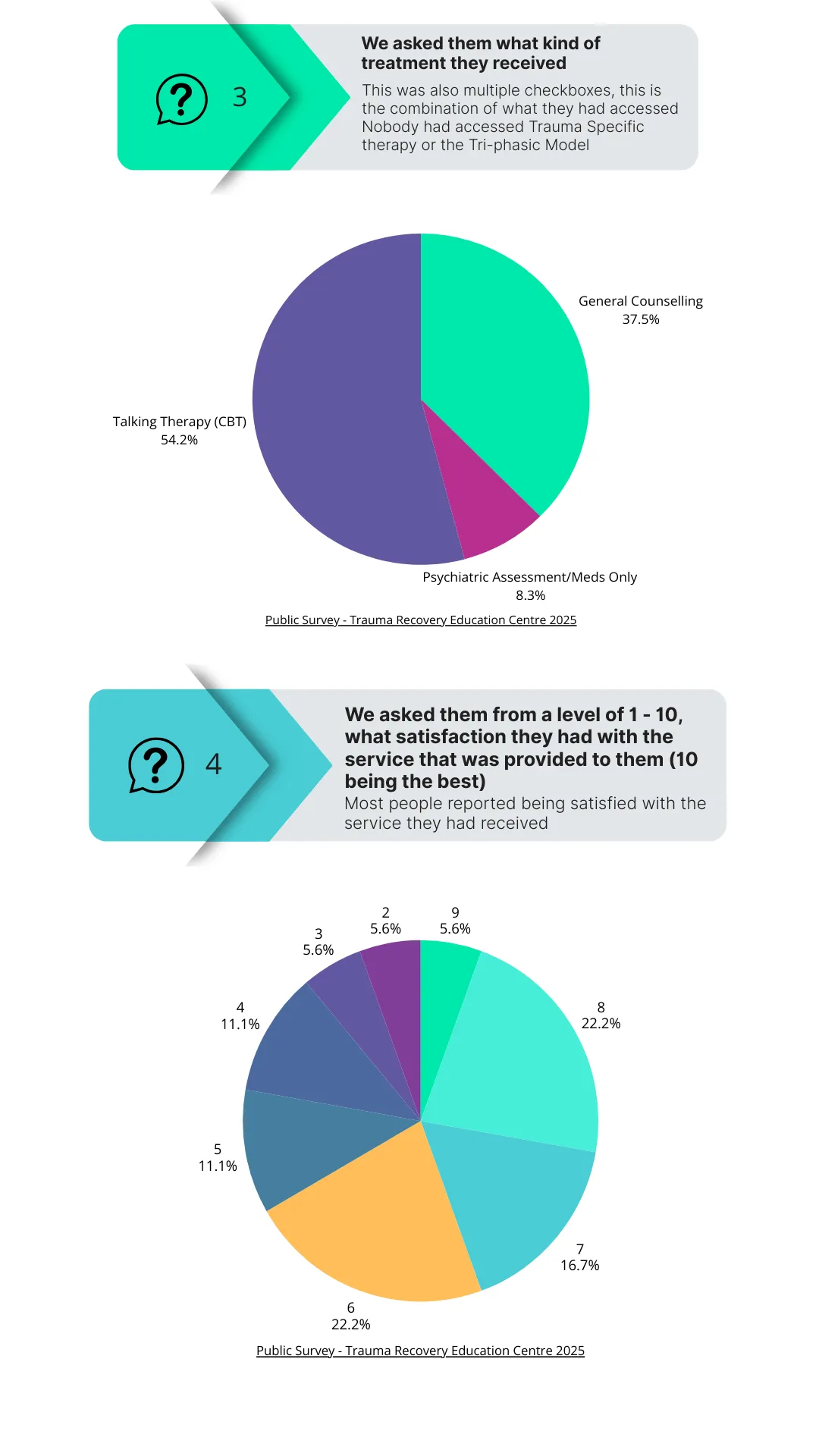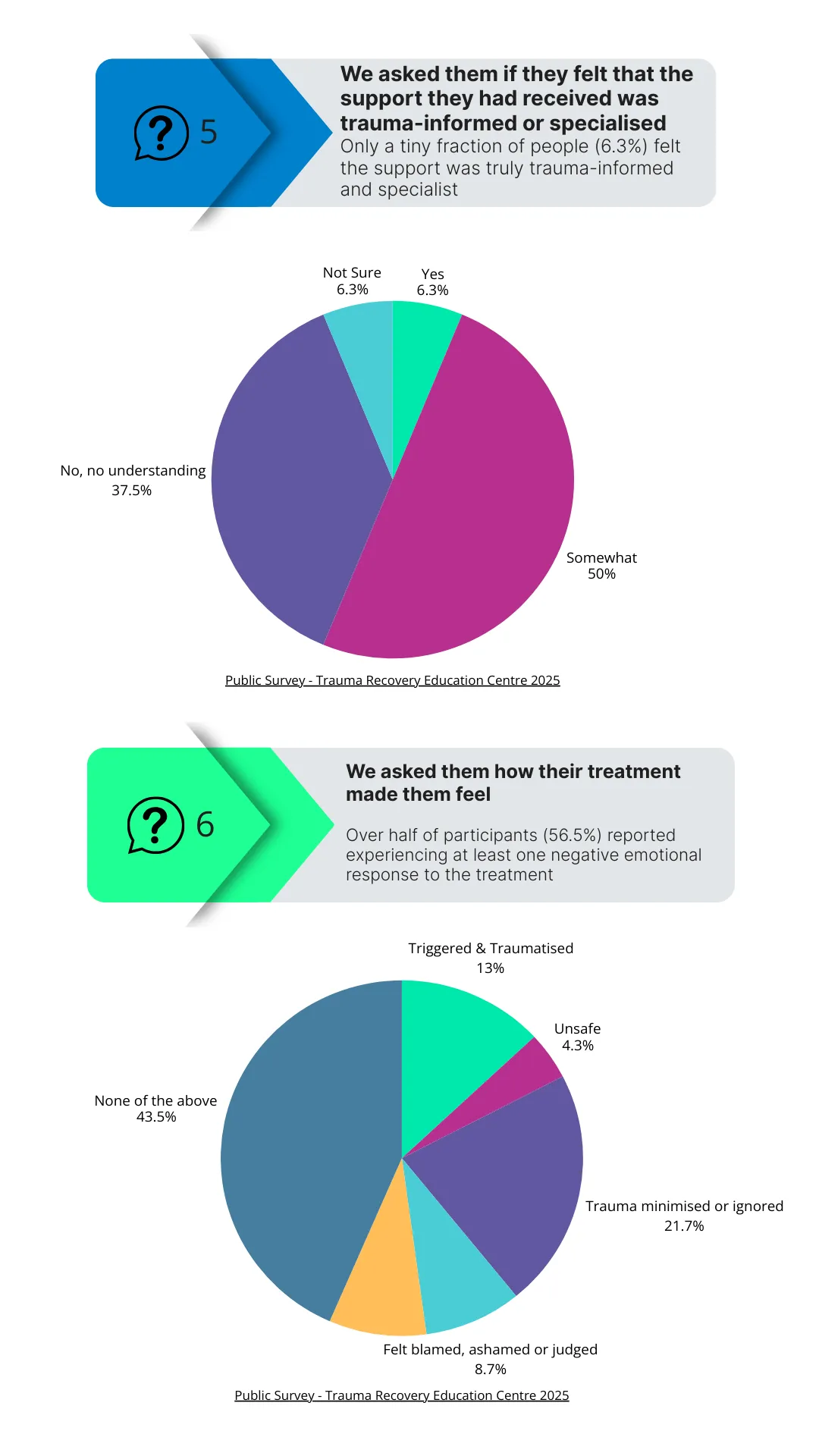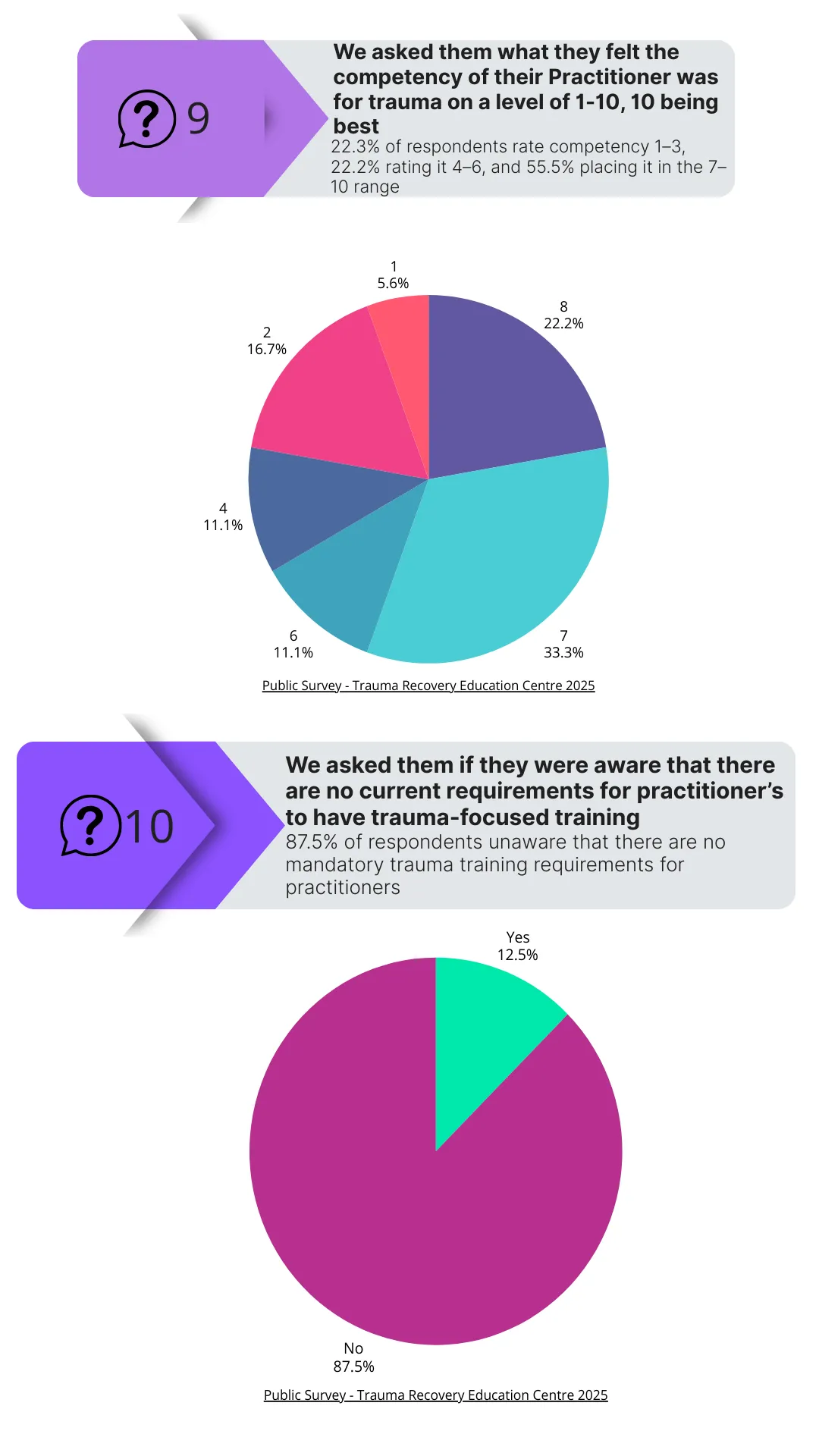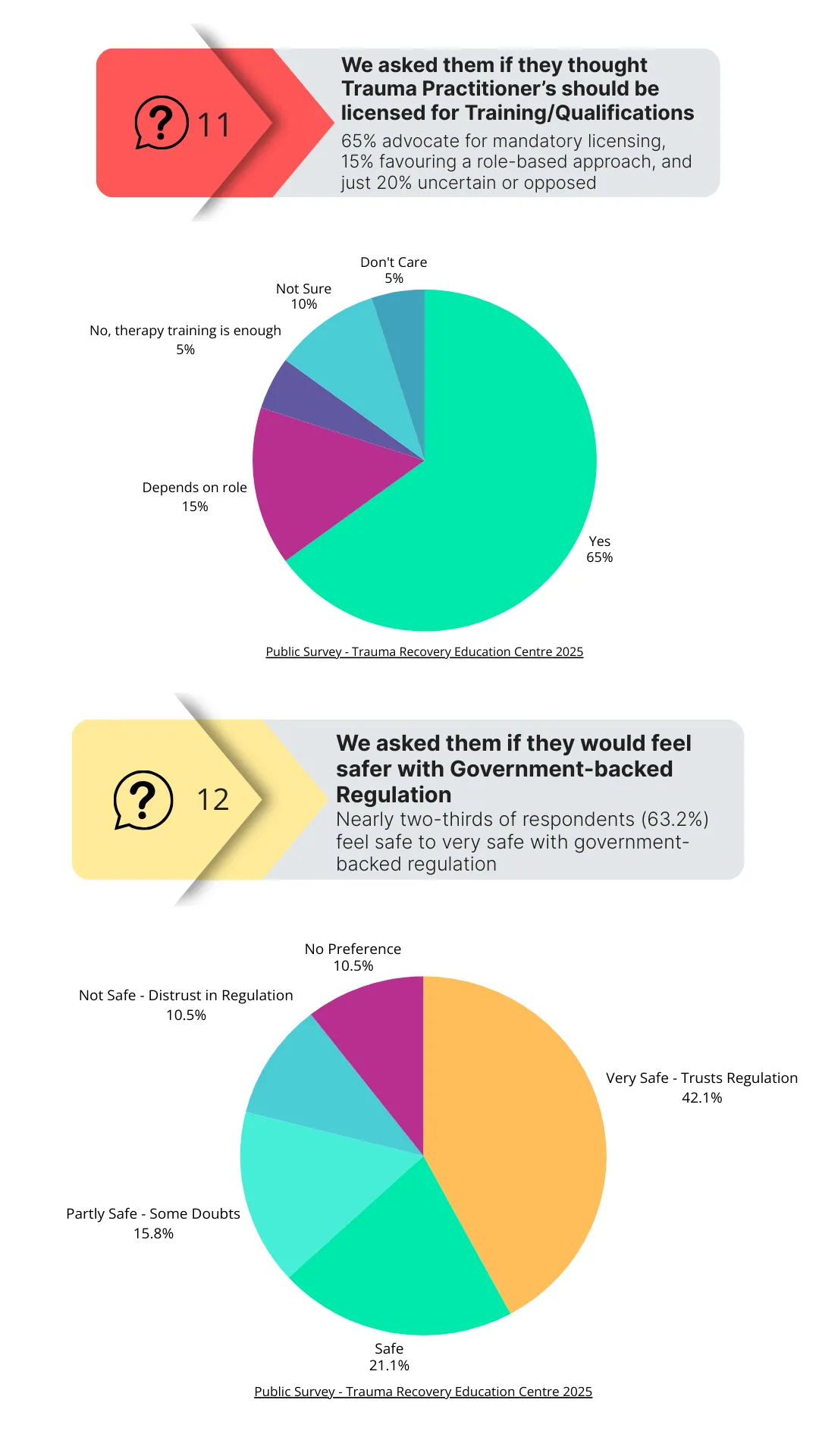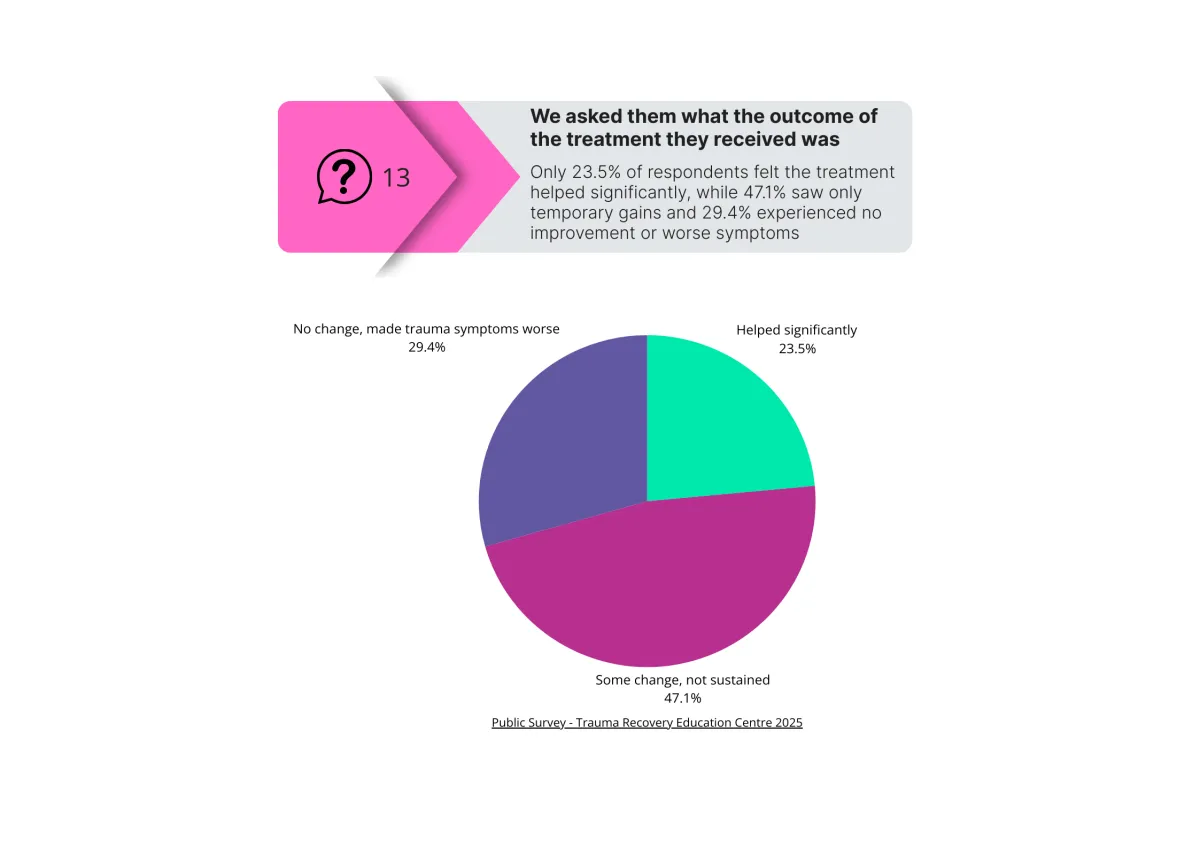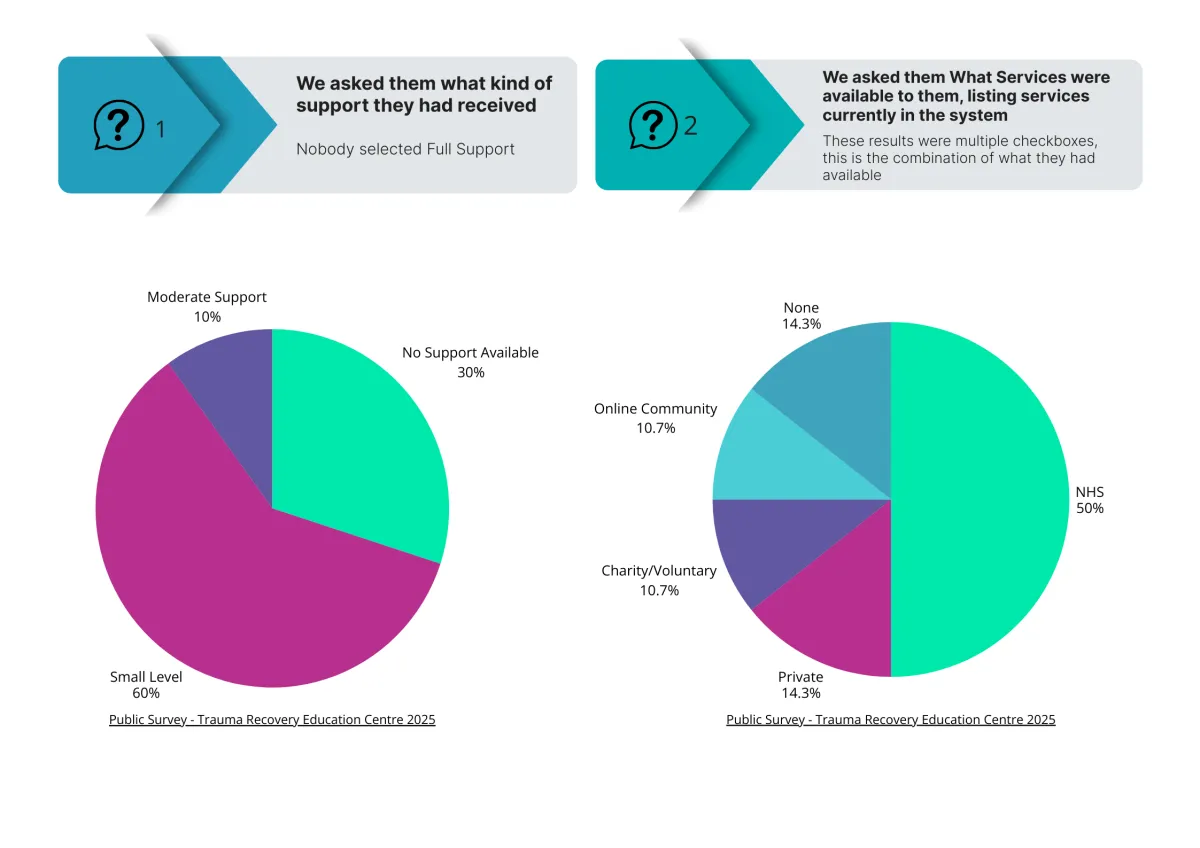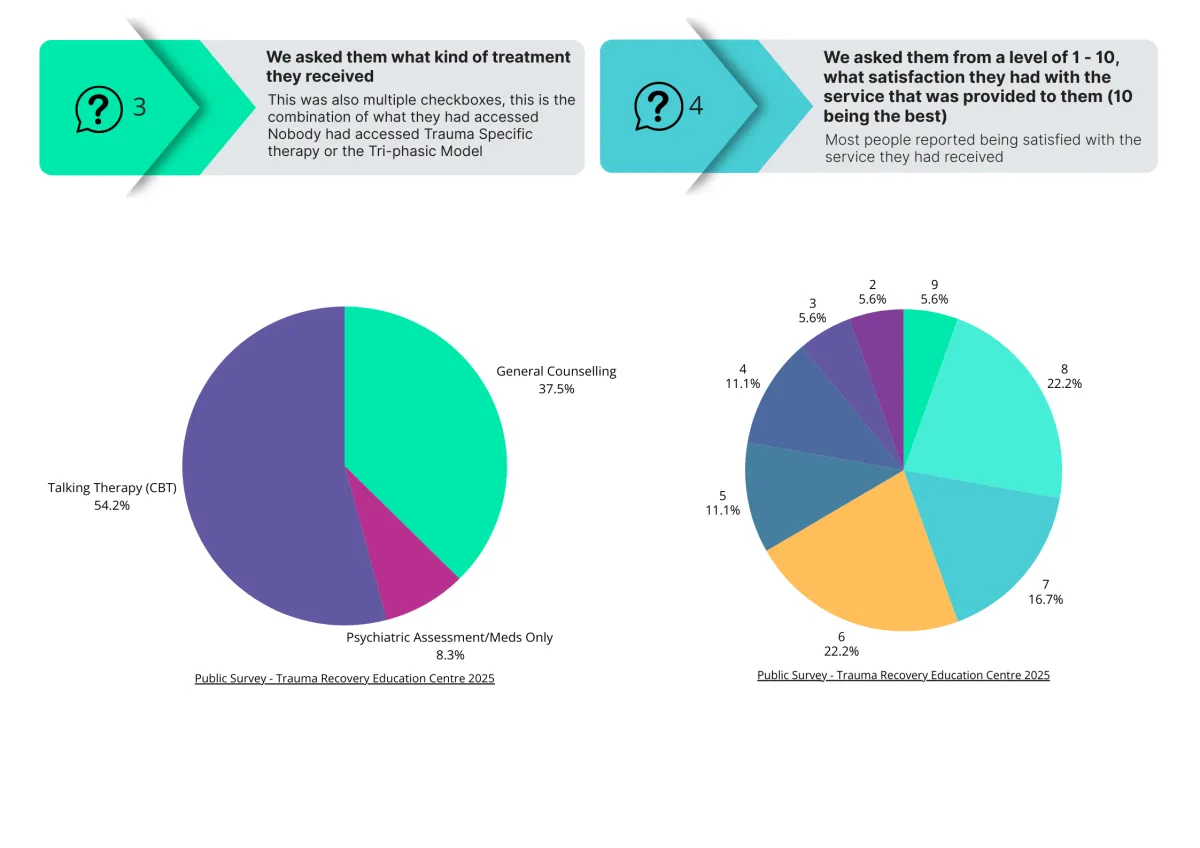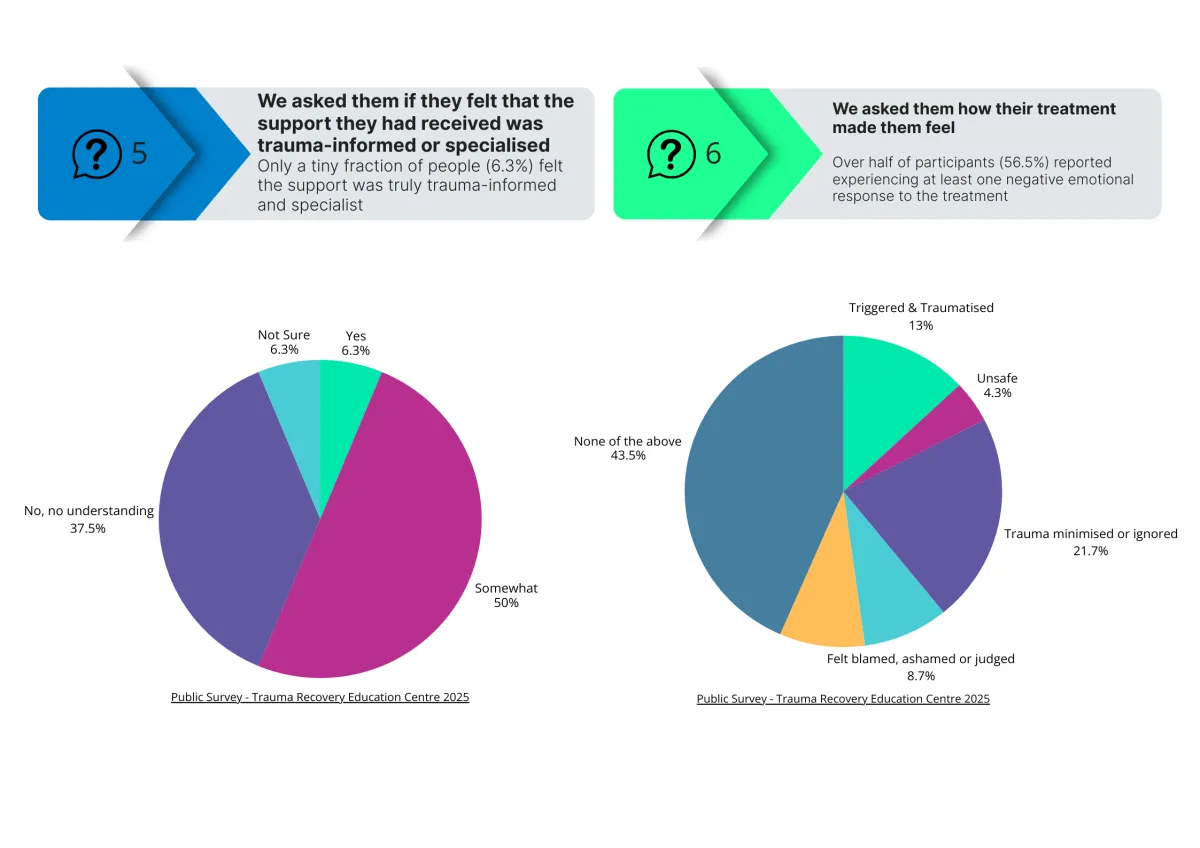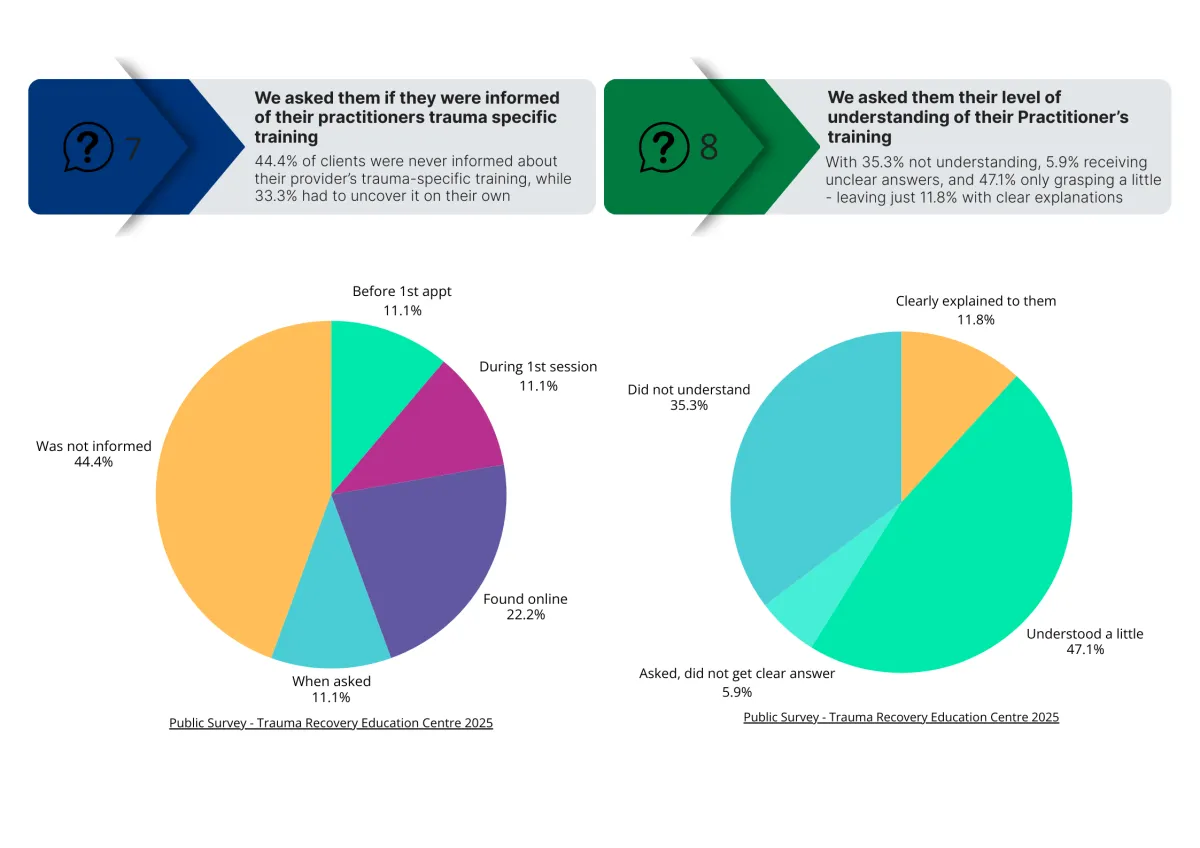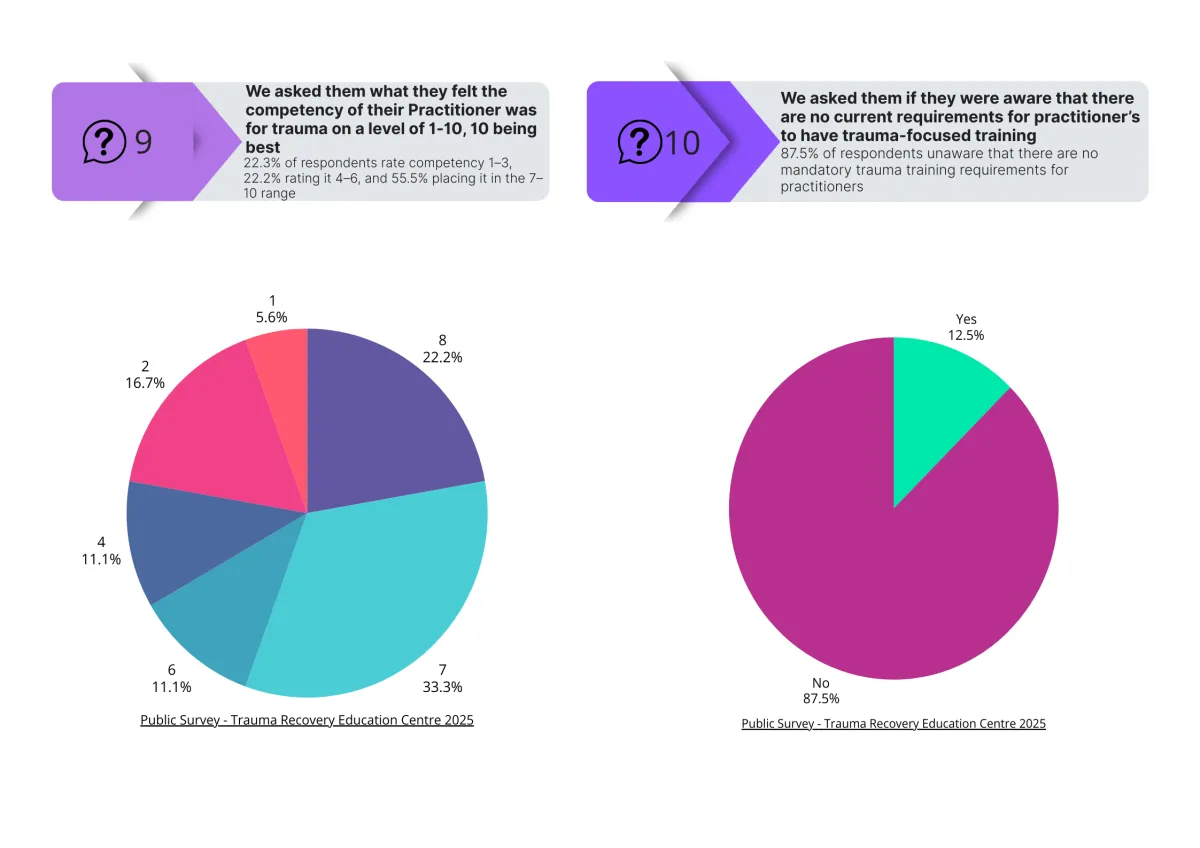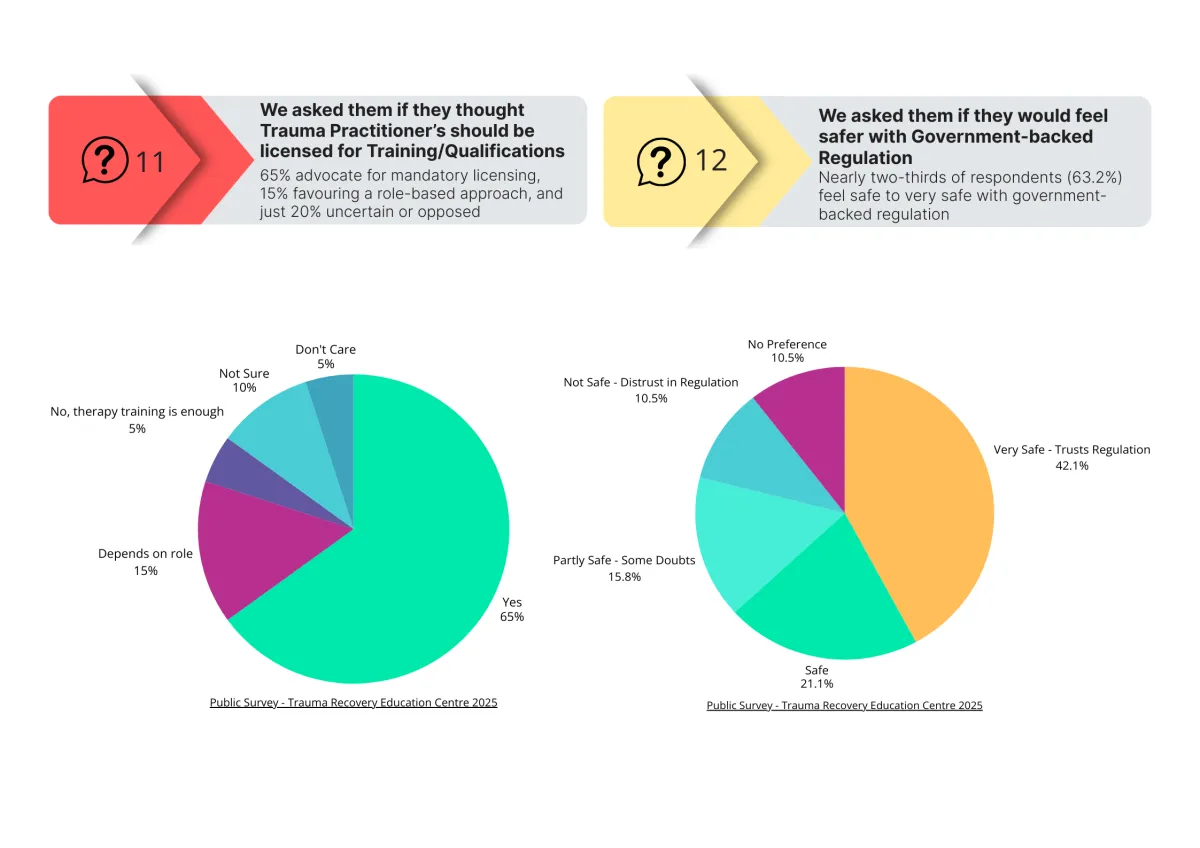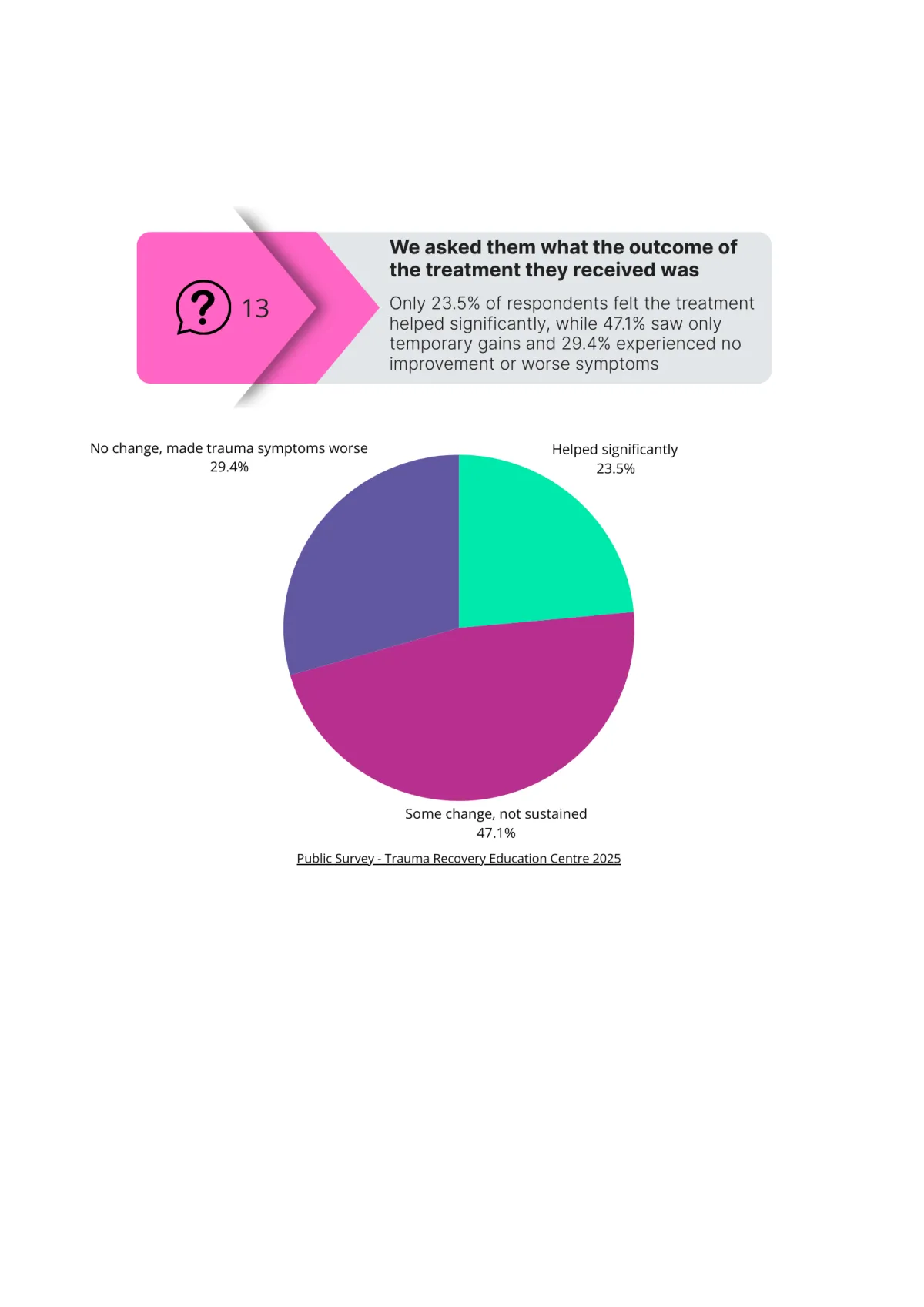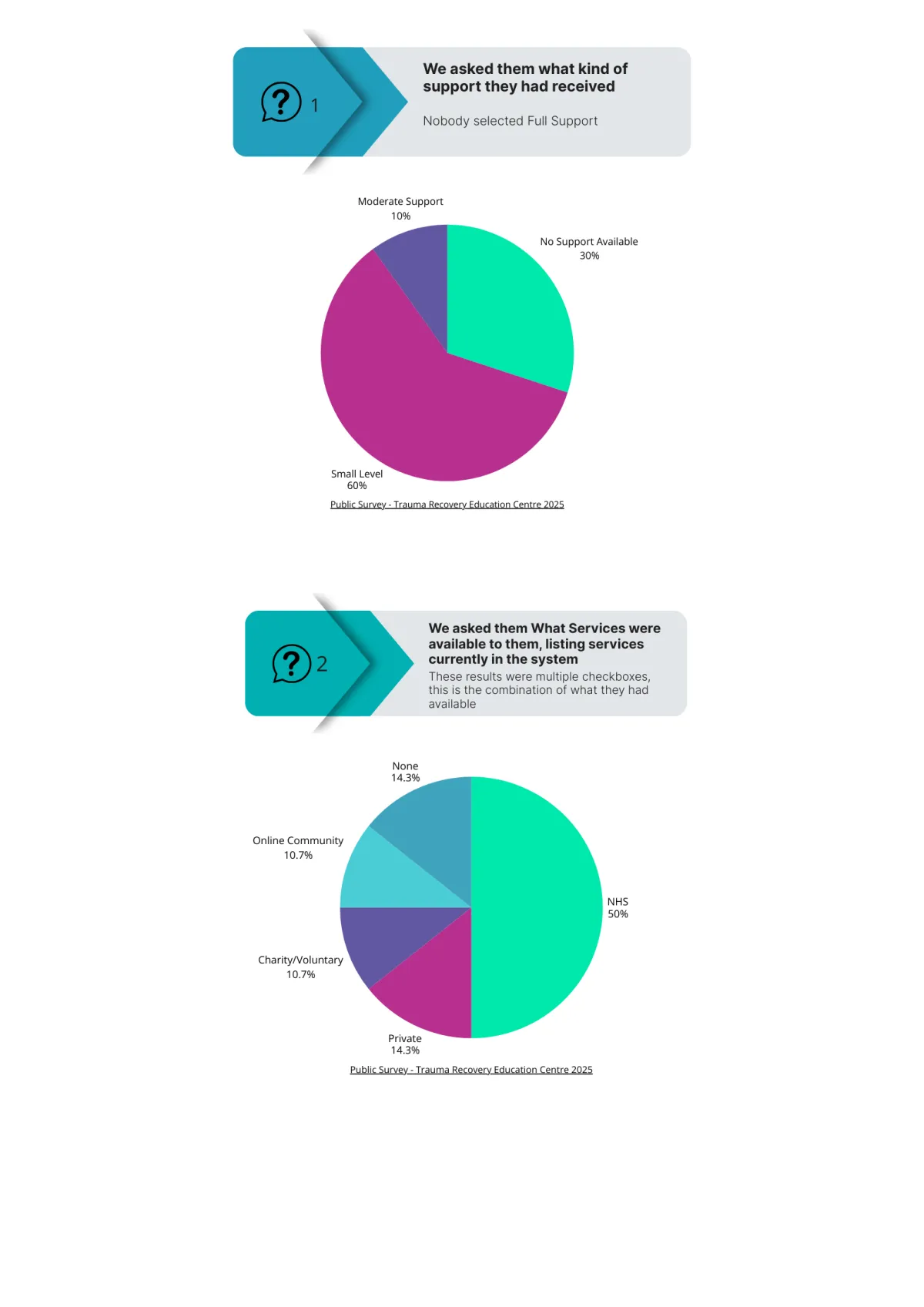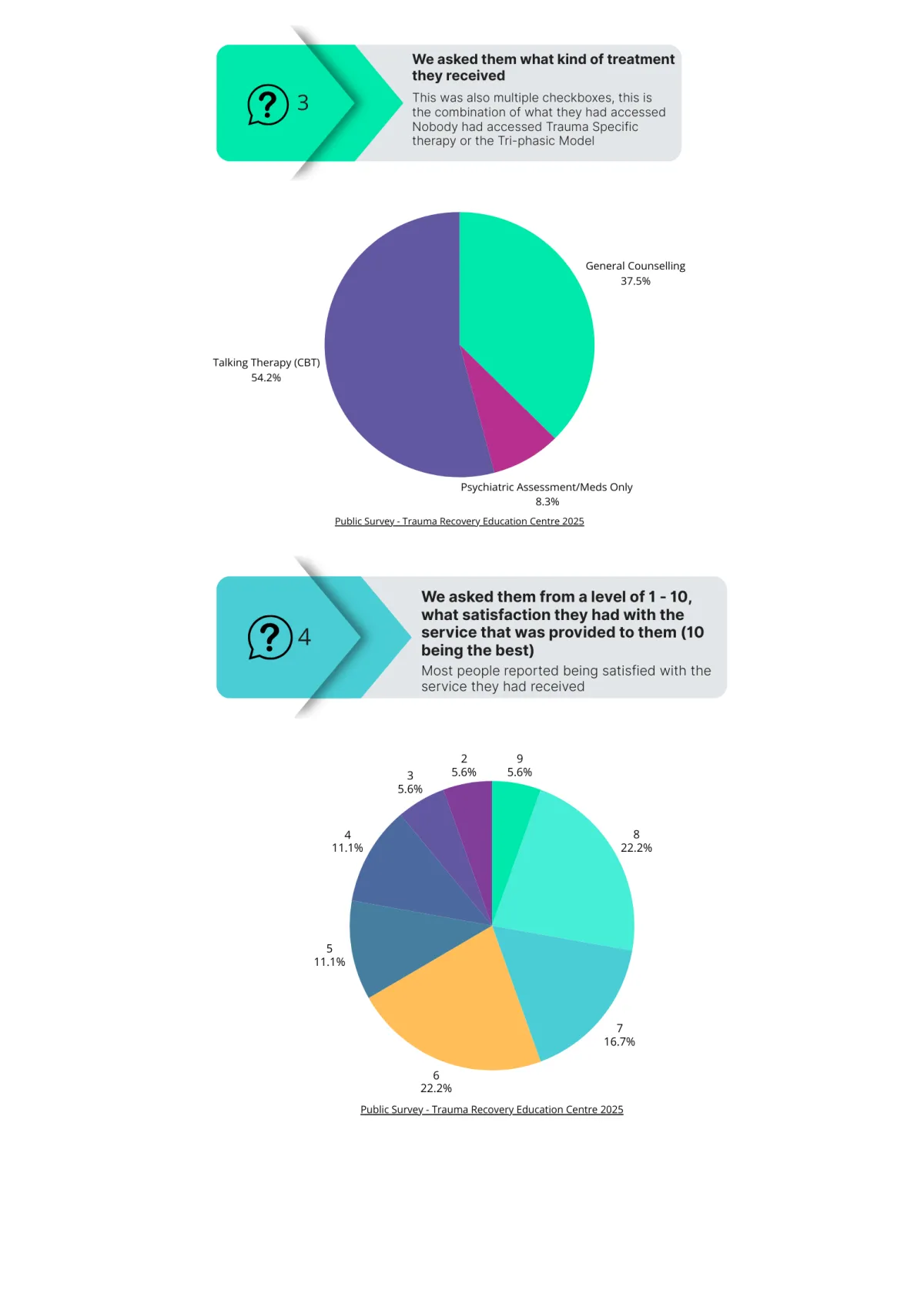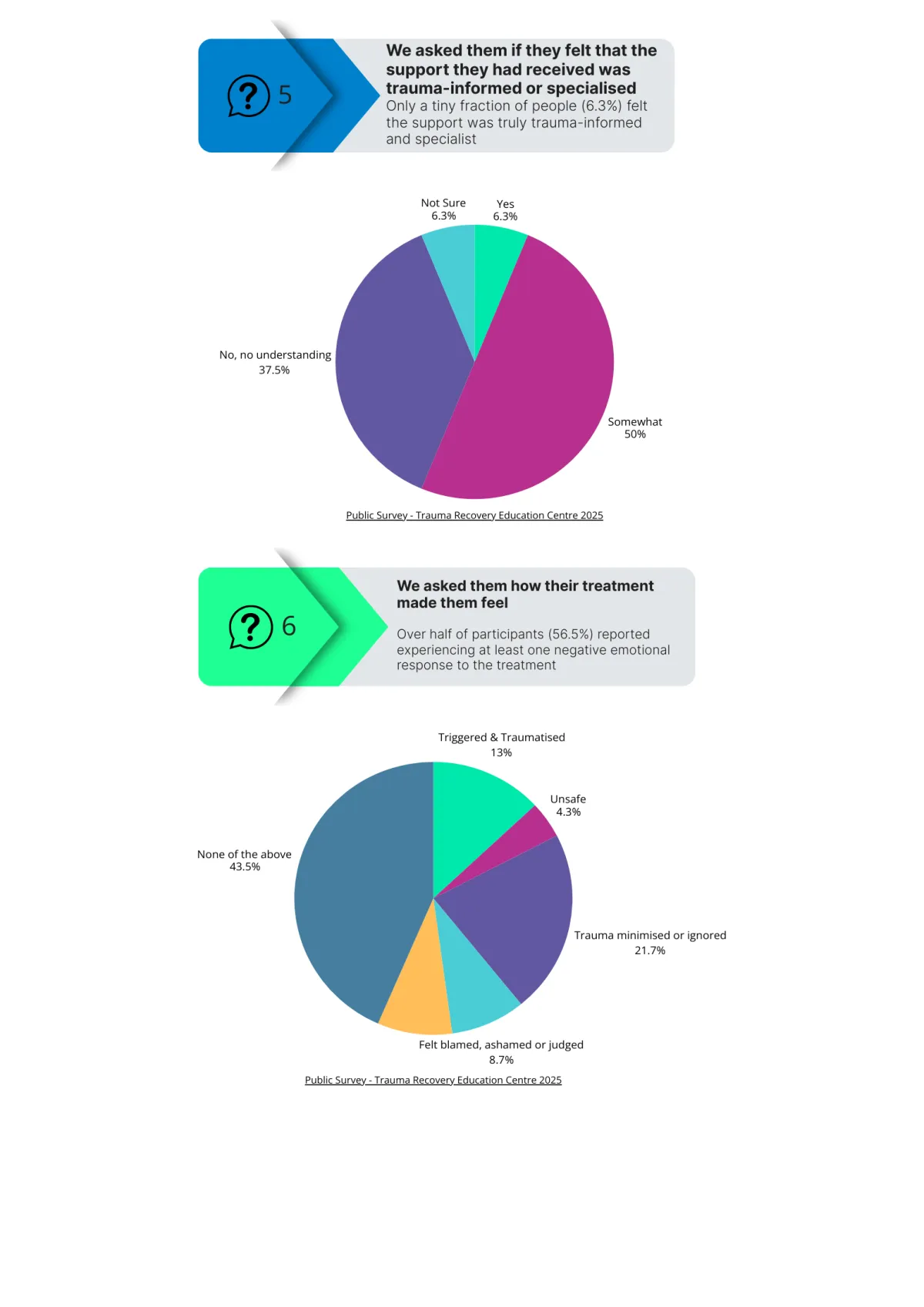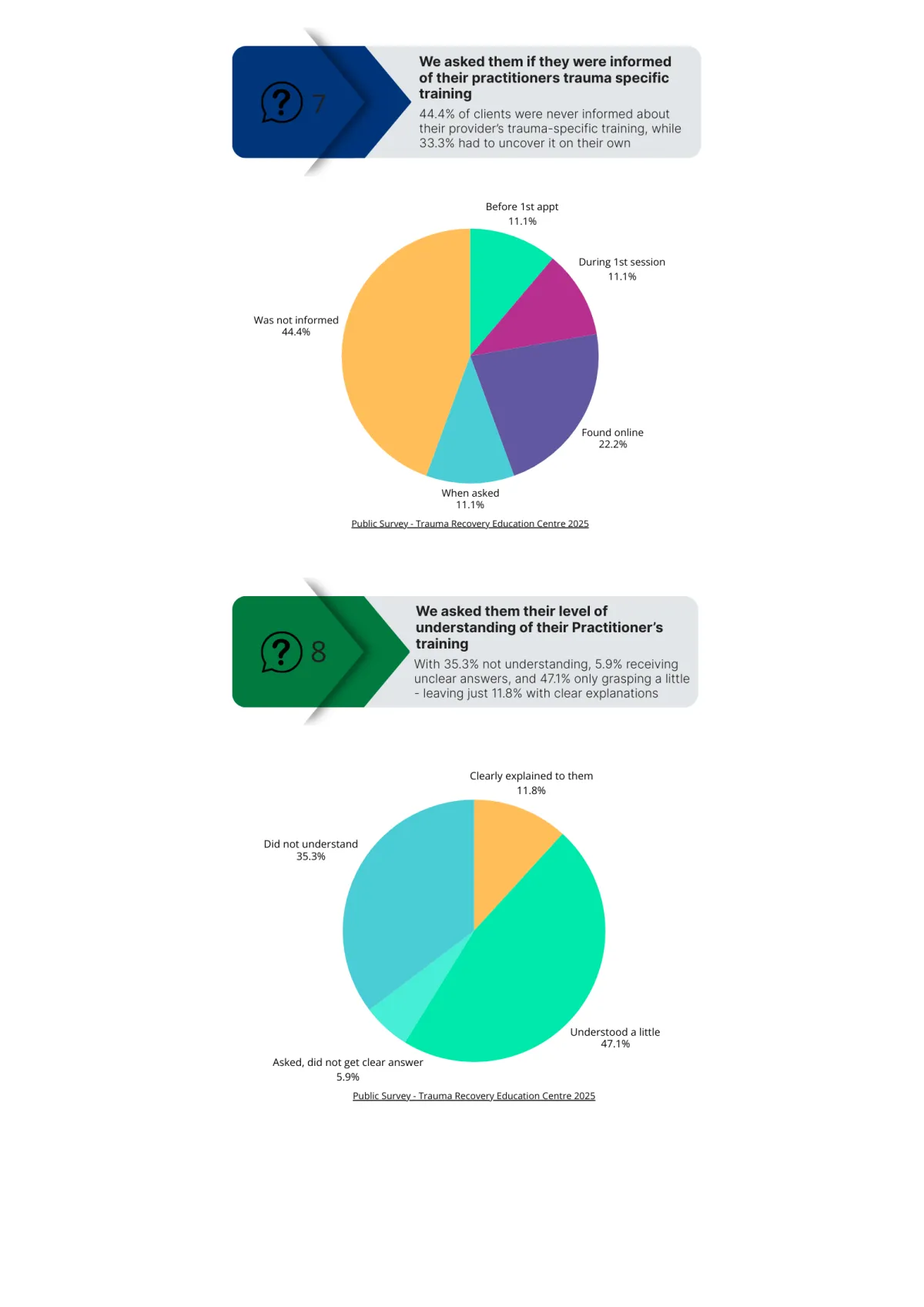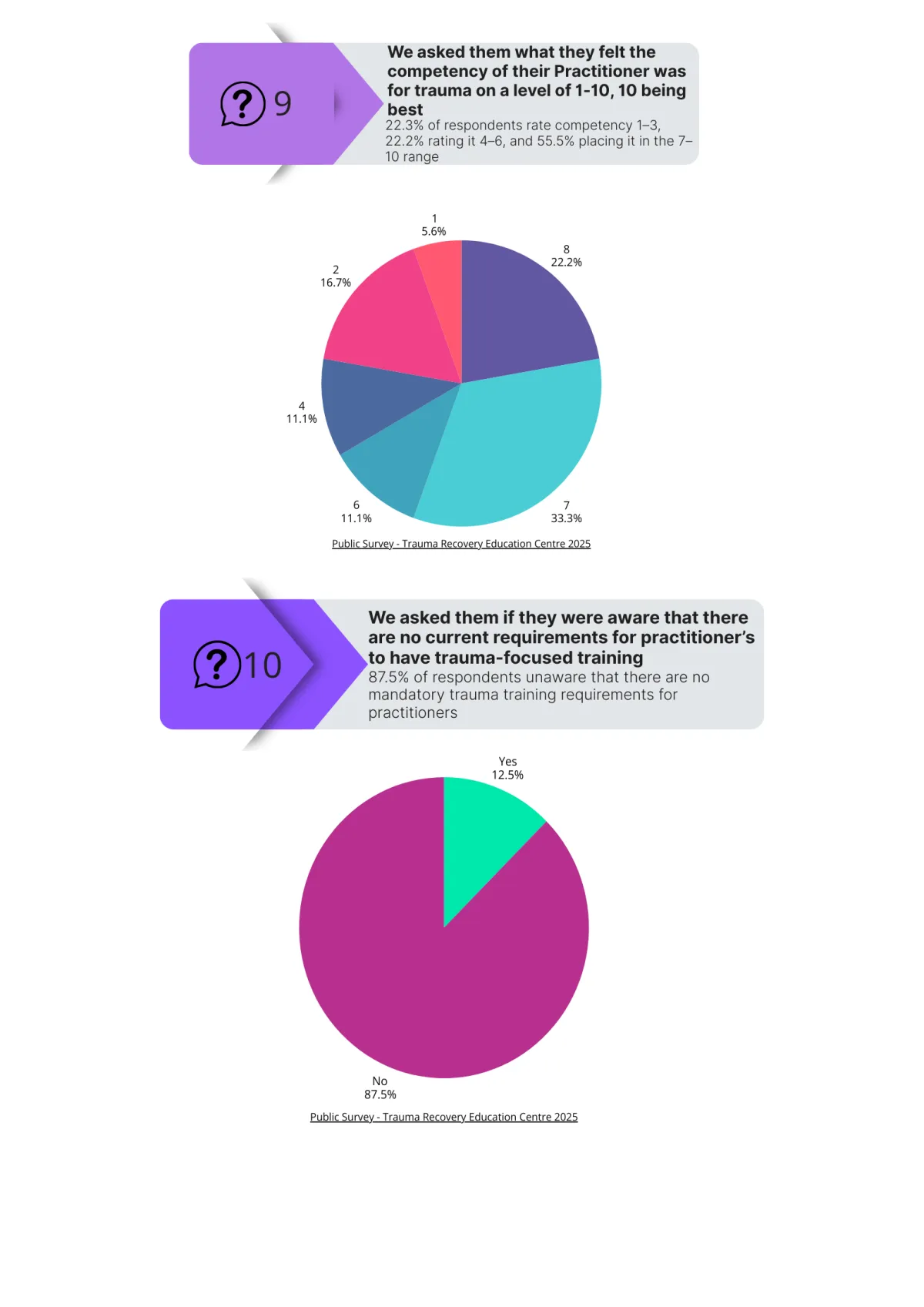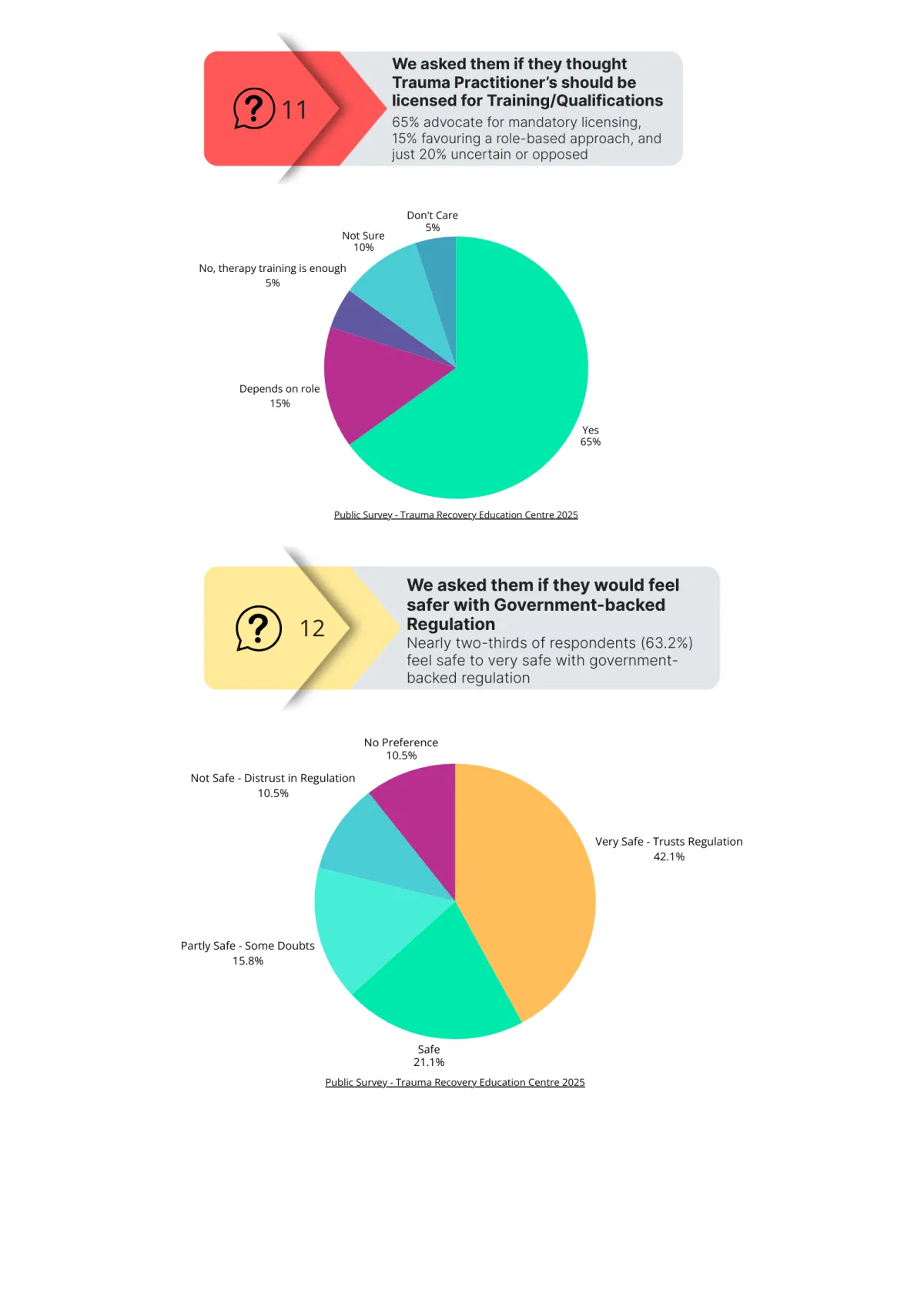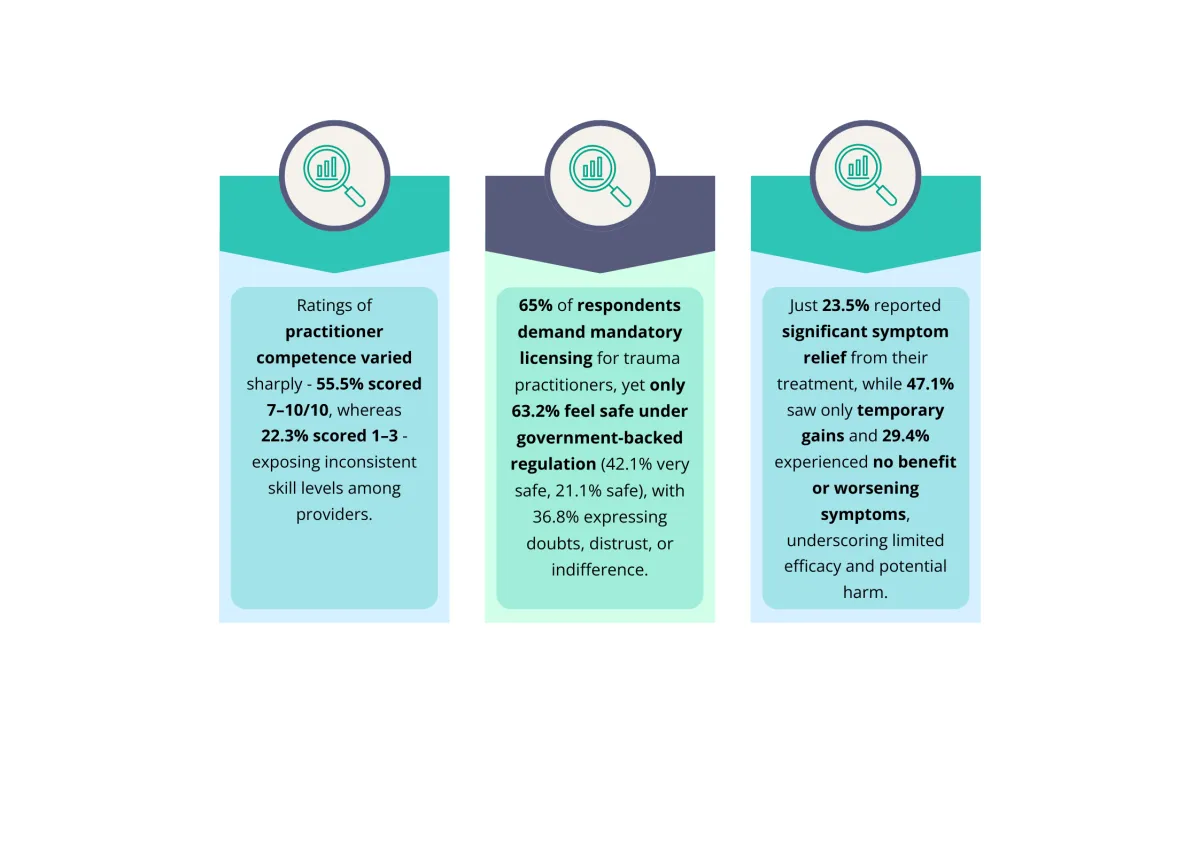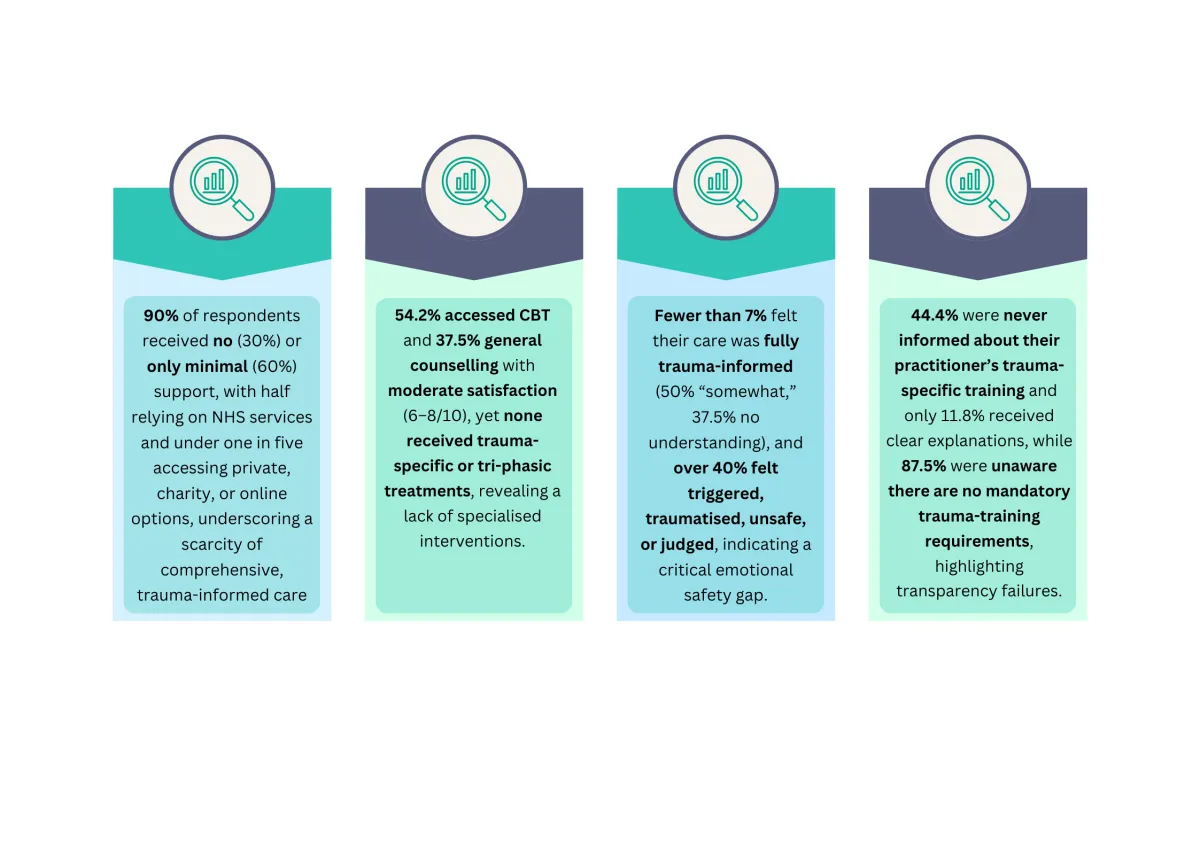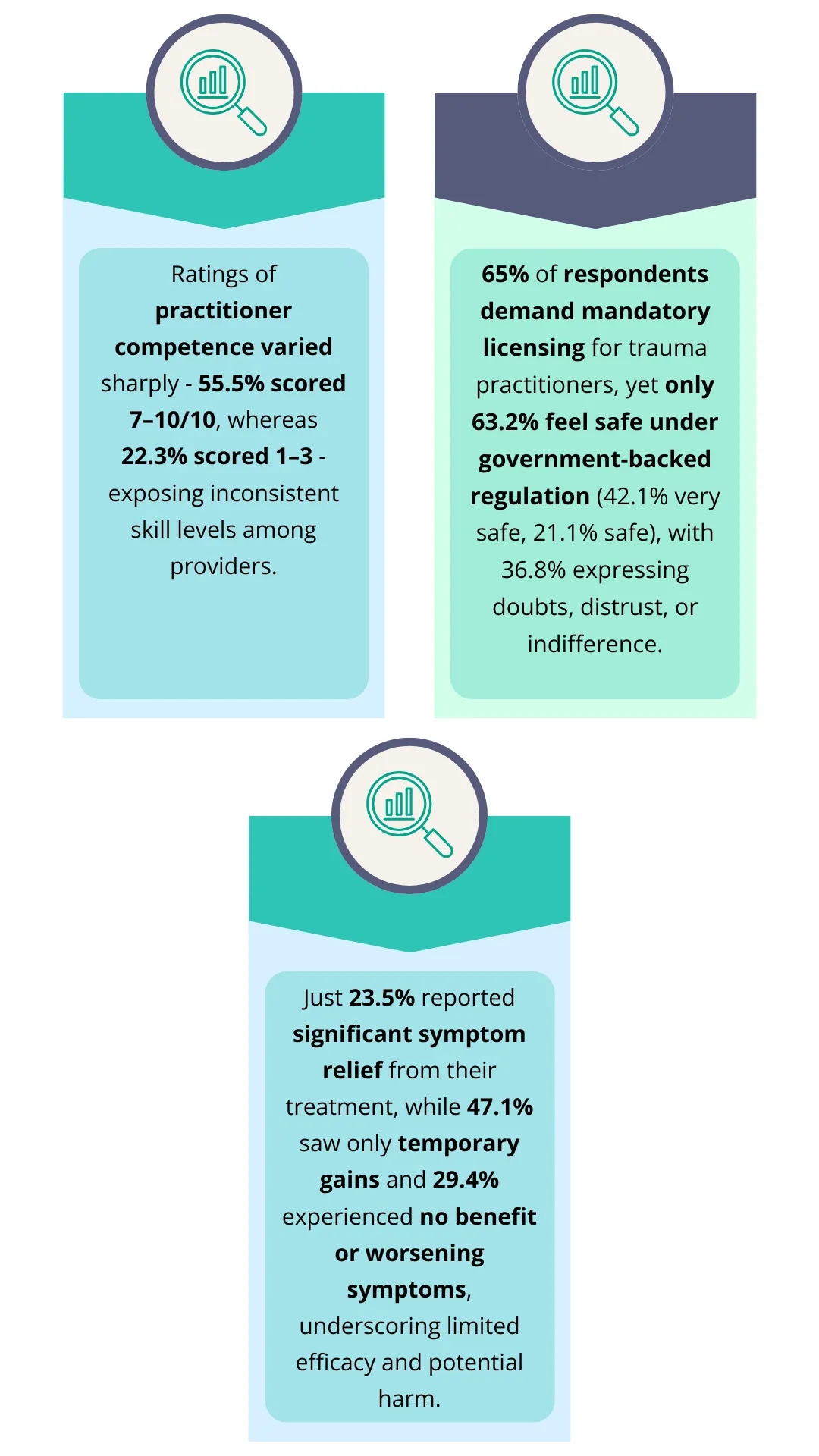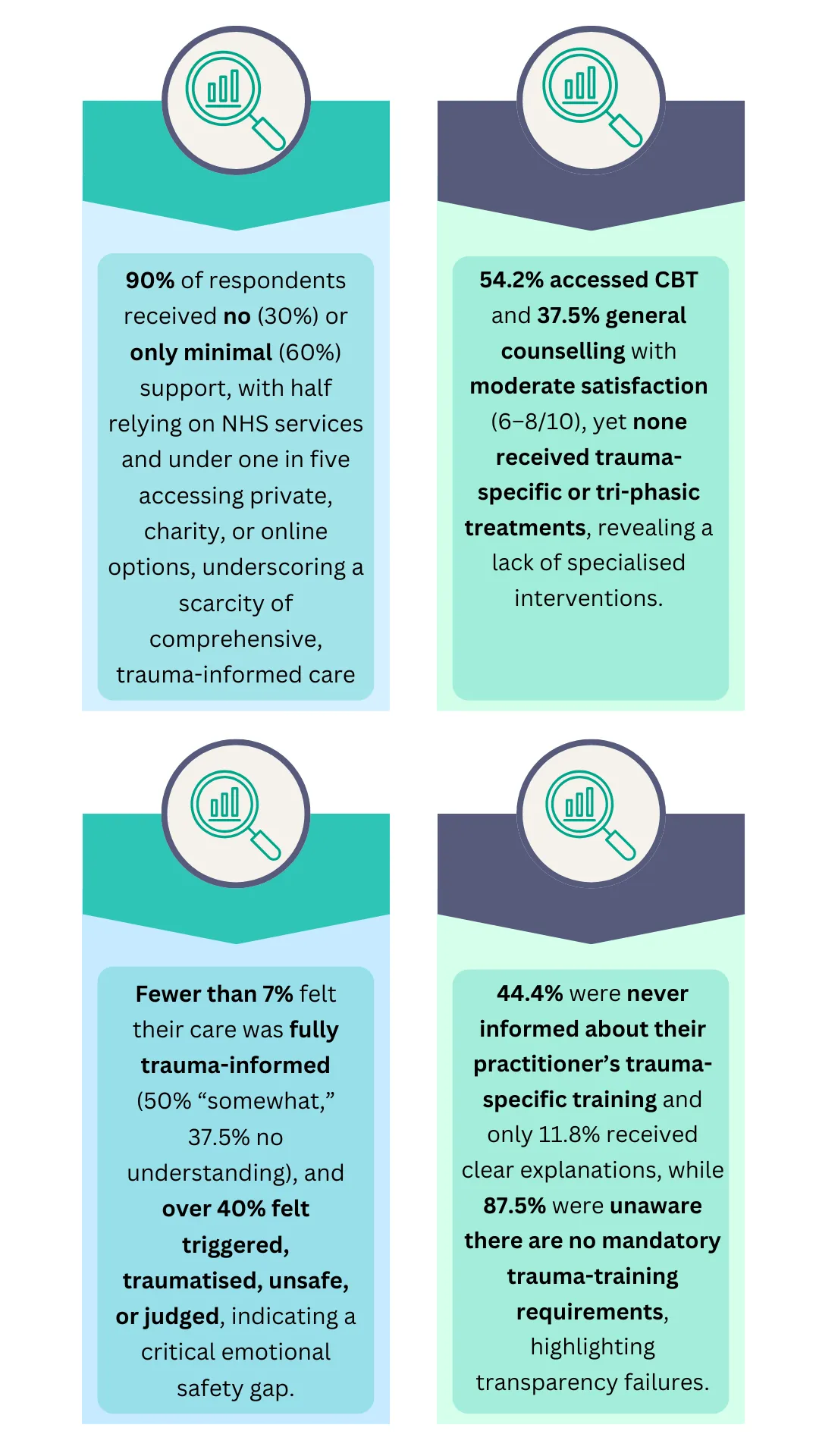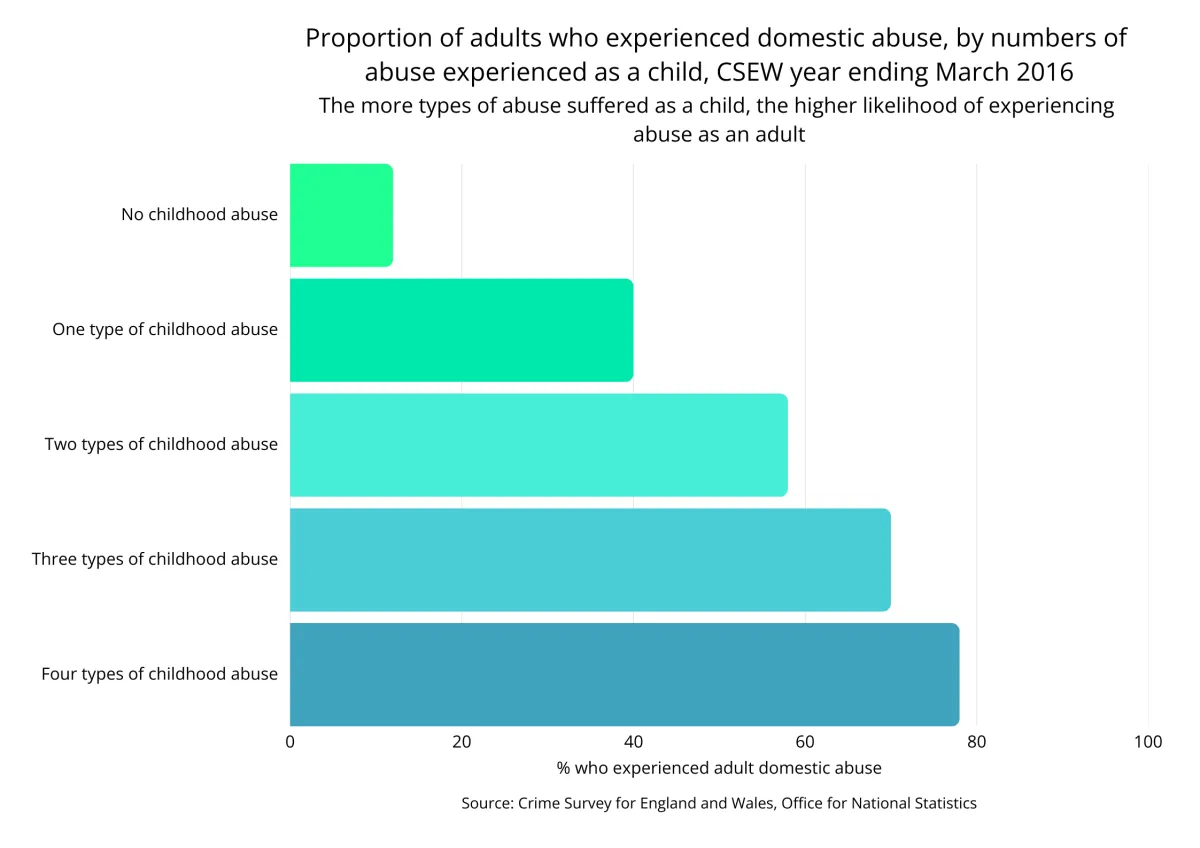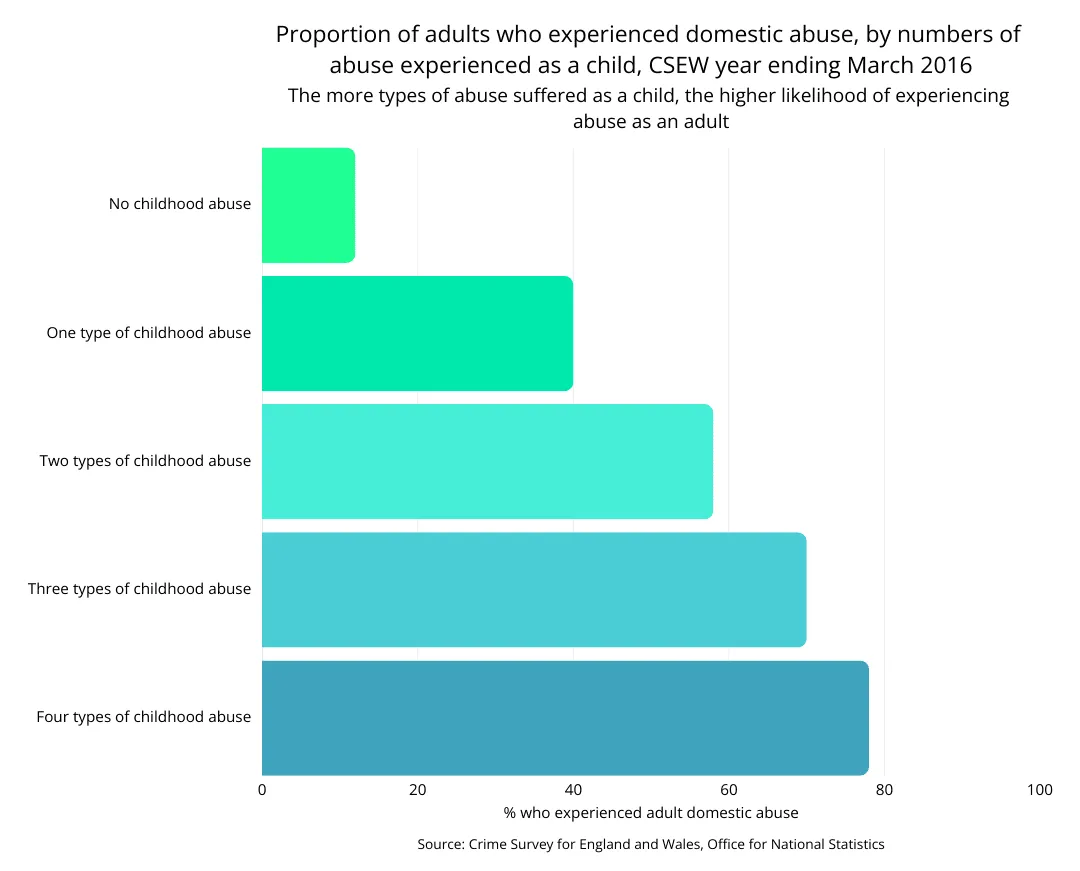Public Protection
Trauma-informed care is not a luxury - it is a critical safeguard. Across youth services, domestic violence support, and criminal justice systems, the consequences of trauma are profound. Yet too often, trauma is misunderstood, minimized, or mishandled by those entrusted with care and protection.
This page exists to highlight the systemic gaps that place survivors at risk. Through evidence, lived experience, and survivor-led insight, we expose the real-world impact of neglecting trauma-informed principles - and advocate for governance that prioritizes safety, dignity, and accountability.
1. Why Public Protection Matters
Trauma recovery services - when delivered unsafely - can retraumatise, destabilise or delay healing. Yet trauma practitioners in the UK are currently unregulated, leaving the public exposed to inconsistent standards, unchecked interventions, and unsupported risk.
2. How TRB Protects the Public
Establishing national competency standards for trauma-specific practice
Maintaining a transparent, searchable register of trauma-accredited professionals
Enforcing a legally defensible Code of Practice aligned with UK legislation
Auditing and accrediting training programmes in line with neuroscience and trauma recovery principles
Offering a complaints and concerns process that holds registrants accountable
Mapping practitioner scope to client need through a tri-phasic model to avoid harm from premature processing
Disciplines We Regulate
Private trauma therapy
Domestic abuse
services
Veterans’ services
Youth justice. Offender rehabilitation
Children’s social work
Mental health
Criminal justice
Legal and Legislative Alignment
TRB’s Regulatory Framework is underpinned by:
Children Act 1989 (s.17 & s.47) – Trauma-informed assessments in child safeguarding
Equality Act 2010 – Recognition of trauma-related mental disorders as disabilities
Mental Health Act 1983 (as amended) – Appropriate regulation of interventions impacting psychological wellbeing
Care Act 2014 – Duties around prevention, wellbeing, and protection in adult care
Human Rights Act 1998 – Right to safe, non-harmful treatment
TRB ensures that trauma practitioners work in compliance with these legal expectations
Explore the Data

When Systems Harm:
What the UK’s Largest Family Court Survey Reveals
The Common Courts Survey was commissioned by The Social Impact Academy, a UK based social justice think tank dedicated to elevating evidence and lived experience in public policy. Through deep partnerships with practitioners, researchers, and those directly affected by family courts, they gather large scale data to spotlight blind spots and drive reform
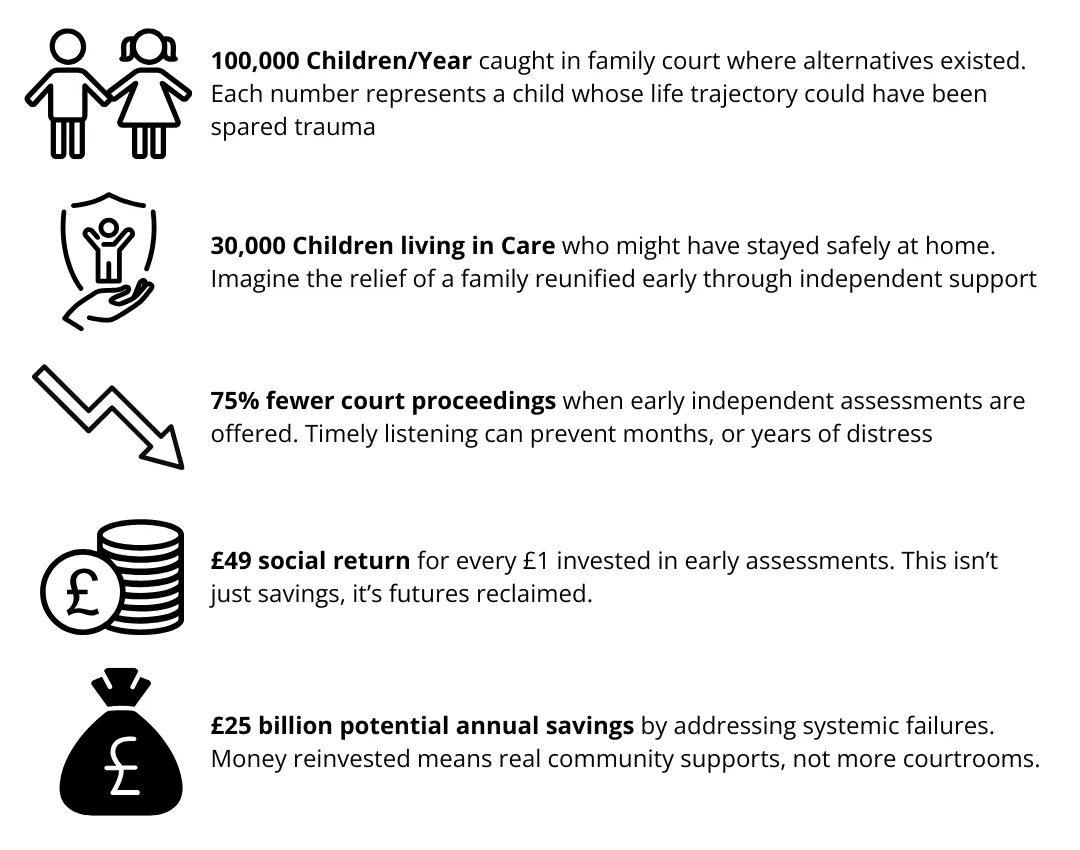
Drawing on findings from the Social Impact Academy’s survey - which showed up to 100,000 children a year experience avoidable harm in family law proceedings - the TRB is embedding trauma-informed standards at every stage of practice.
In partnership with SIA experts, our regulated framework mandates validated risk assessments, survivor-centred safety planning, and early referral into accredited support and rehabilitation programs. Continuous oversight through our compliance dashboard and multi-agency information-sharing processes ensures risks are flagged promptly and outcomes monitored rigorously. By integrating these evidence-based protocols system-wide, the TRB enhances practitioner accountability, strengthens collaborative decision-making, and delivers independent safeguards that protect children, survivors, and communities

By integrating these insights into our public protection work, the Trauma Regulation Board will:
Calibrate our Trauma Regulation Board Risk Matrix using real-world data on system failures and child harm
Strengthen accreditation standards for assessors by embedding the survey's success metrics for early intervention
Focus Audit and Compliance reviews on high-risk practices the survey identifies, prioritising fixes where they matter the most
Tailor our Practitioner training modules to include case studies and statistics from the survey, so Judges, Lawyers and Social Worker's learn from lived experience
Guide our survivor oversight panels with concrete data on systemic neglect, ensuring co-designed reforms tackle the root causes of trauma
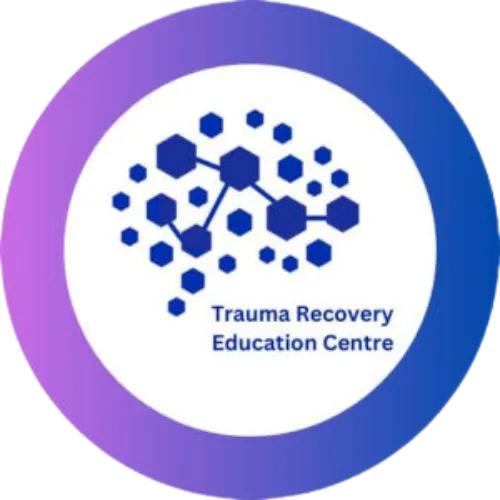
Trauma-Focused User Feedback
Evaluating Mental Health Services
The Trauma Recovery Education Centre recently conducted a nationwide public survey to amplify the voices of those who use mental health services. By gathering first-hand feedback on accessibility, treatment effectiveness, and trauma-informed practices, the survey illuminates real-world strengths and gaps in care. We’ve published the full results here to give practitioners, policymakers, and the public transparent insight into user priorities and areas for improvement.
What we Found:
Collectively, these findings expose systemic failures in delivering consistent, trauma-informed mental health care across the UK. There is an urgent need for mandated trauma-training standards, formal licensing of practitioners, and robust, transparent regulation to ensure accountability, elevate quality, and safeguard survivor well-being.
Members providing mental health services will be bound by clear standards that address the systemic failures revealed in our survey - high rates of unsupported survivors, absence of specialised trauma treatments, critical emotional-safety gaps, opaque practitioner credentials, inconsistent competence, and limited treatment efficacy.

To protect the public, the Trauma Regulation Board embeds mandatory, survivor-centred safeguards into our core framework, ensuring every practitioner demonstrates competence, transparency, and accountability in delivering trauma-informed care:
We require foundational and continuing professional development in trauma-specific and tri-phasic treatment models as a condition of membership
Mandate public disclosure of practitioner trauma-training credentials and patient-facing explanations of competencies
Oblige quarterly reporting of key outcome metrics (symptom alleviation, emotional-safety indicators, patient satisfaction)
Conduct regular audits and enforce tailored improvement plans or sanctions for non-compliance
Children Navigating Legal Systems
Definition & Prevalence
Childhood trauma refers to emotional wounds caused by shocking or repeated frightening experiences - such as abuse, neglect, witnessing violence, or sudden loss - that disrupt healthy physical, emotional, and cognitive development.
Among young people who offend, up to 90% report histories of maltreatment and loss, underscoring a strong association between early trauma and later violent behaviour.
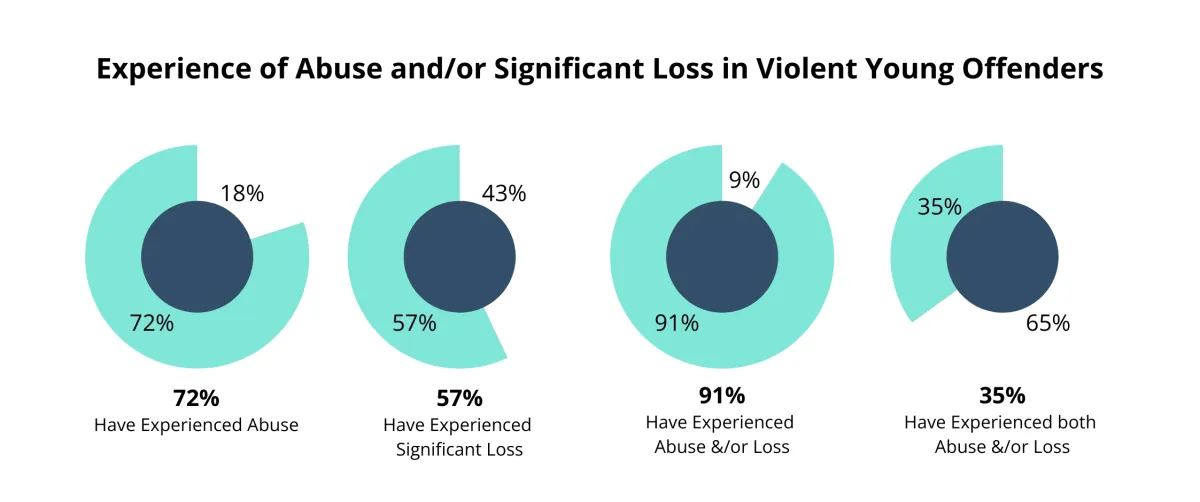
Key Statistics
Two-thirds of youths involved in serious violence have experienced five or more adverse childhood experiences (ACEs); over one-fifth report eight or more ACEs.
Justice-involved children often come from disadvantaged backgrounds marked by poverty, family breakdown, and school exclusion—factors that heighten exposure to trauma and risk of offending.
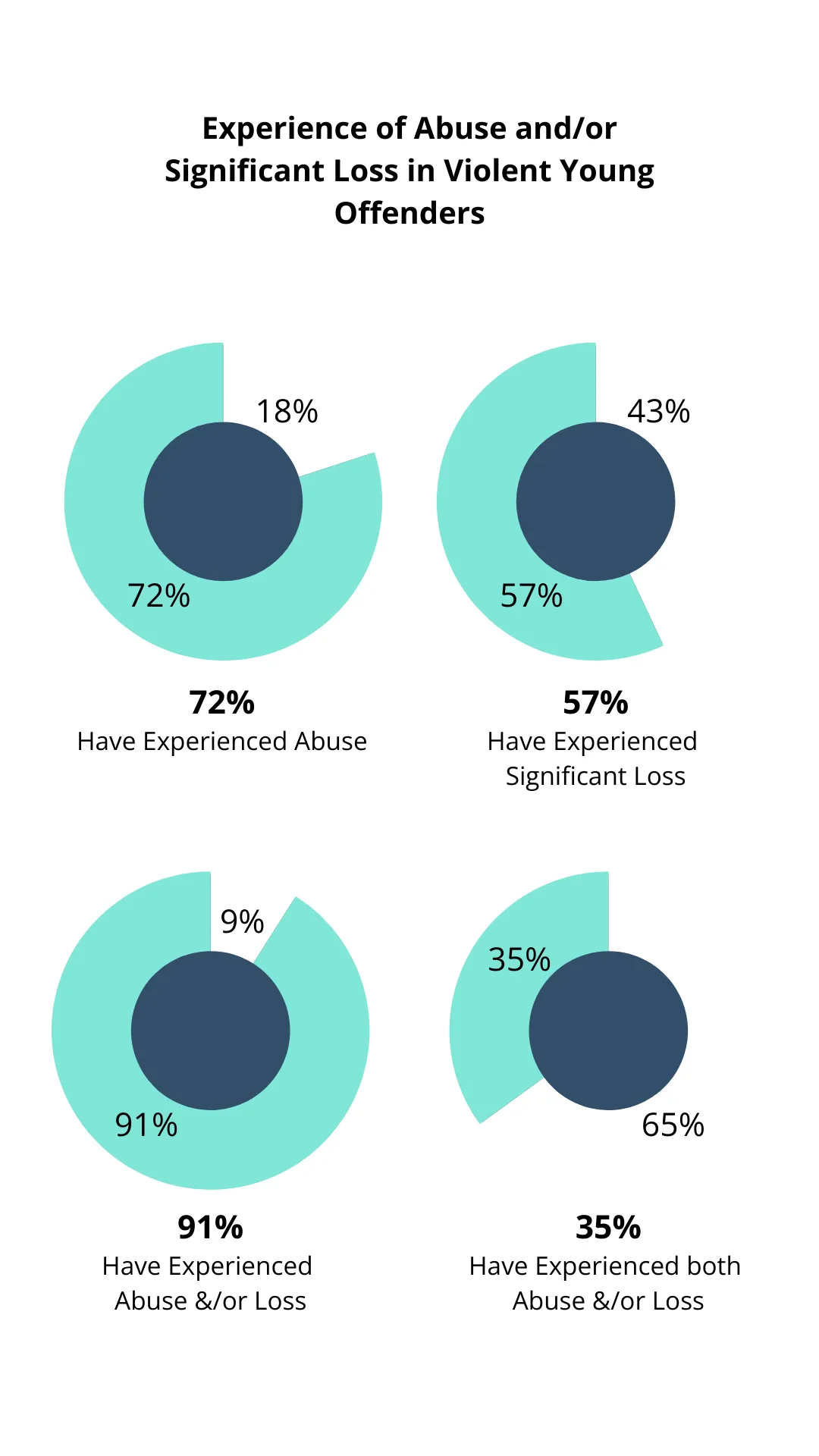
Source: https://www.beyondyouthcustody.net/justice-system-retraumatising-vulnerable-young-people Based on data from Boswell (1996)
How Trauma impacts Development & Behaviour
Trauma disrupts emotional and social development, blunting self-esteem, confidence, and awareness of danger.
Survivors may remain in a chronic fight-flight-freeze state, leading to hypervigilance, aggression, withdrawal, or dissociation in everyday interactions.
Emotional dysregulation and desensitization to distress can manifest as pre-emptive violence or instrumental use of aggression to control perceived threats.
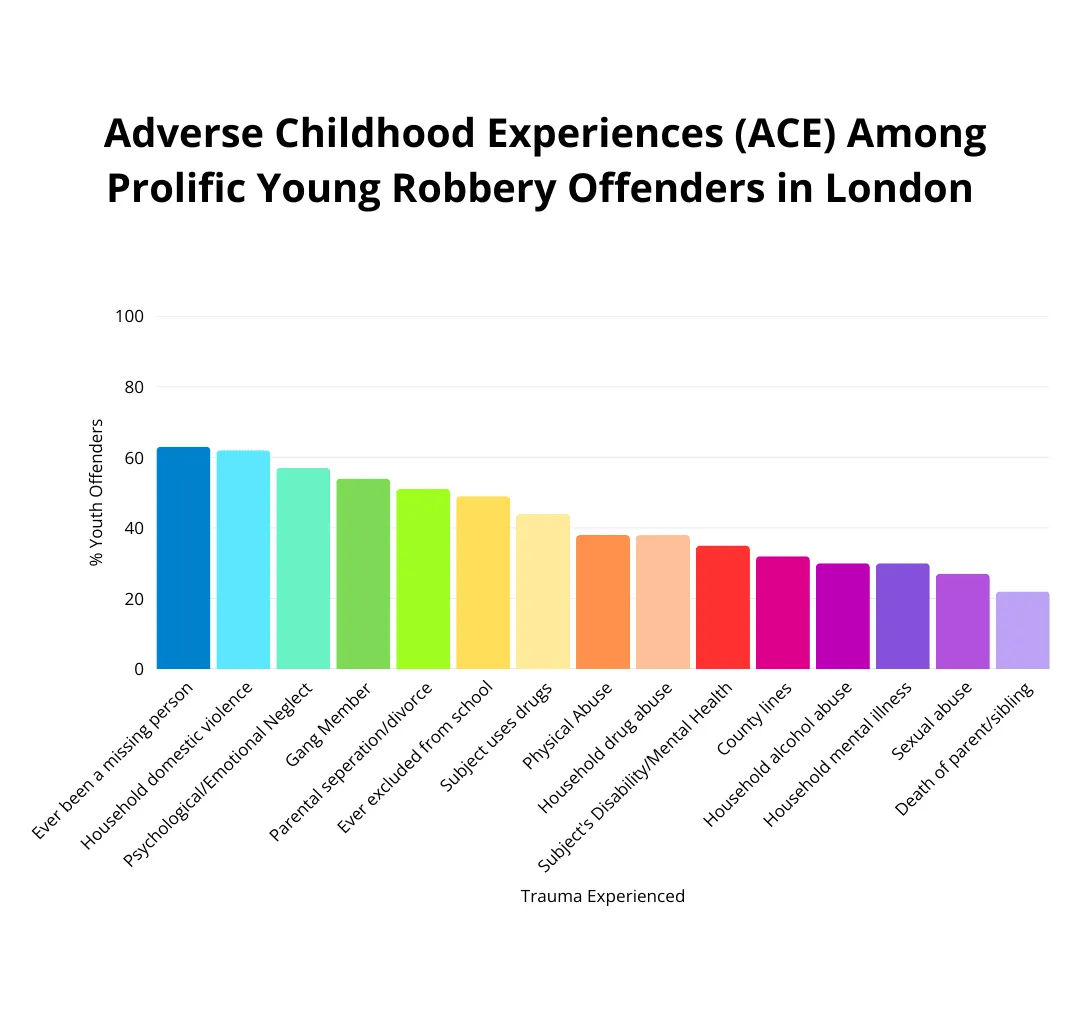
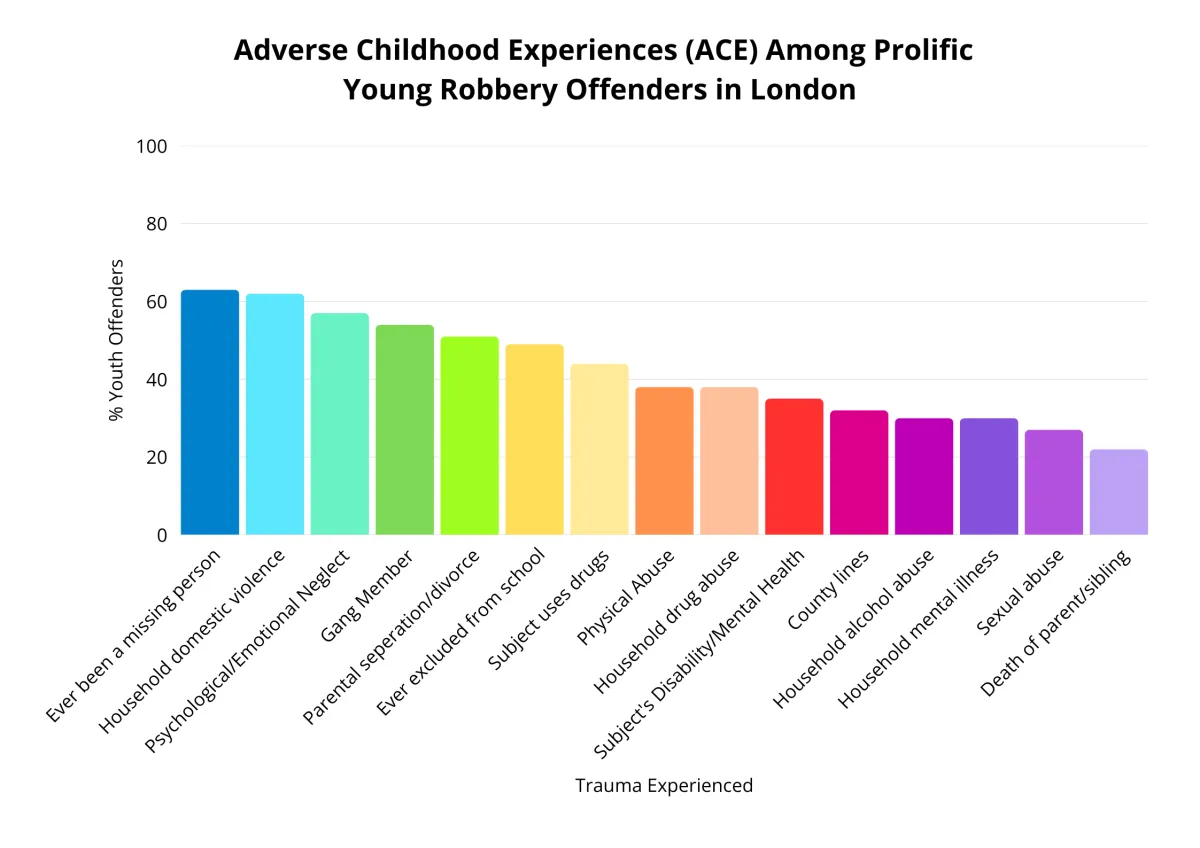
Source: https://link.springer.com/article/10.1007/s41887-021-00070-7 (2019)
Trauma-Informed Approaches
Establishing physical and emotional safety is foundational: services should avoid re-traumatizing practices and train staff to recognize trauma responses.
Evidence-based interventions include trauma-focused cognitive behavioural therapy and the Trauma Recovery Model, often delivered through enhanced case management within youth offending teams.
Relationship-Based Practice and multi-agency collaboration ensure tailored support that honours each young person’s history and builds resilience.
Mechanisms Linking Trauma to Offending
Unprocessed trauma can drive risk-taking behaviours, such as substance misuse or risky sexual activity, increasing vulnerability to further harm and criminal involvement.
Dissociative responses and low self-efficacy may undermine traditional rehabilitative efforts, as youths struggle to engage in interventions without first addressing underlying trauma.
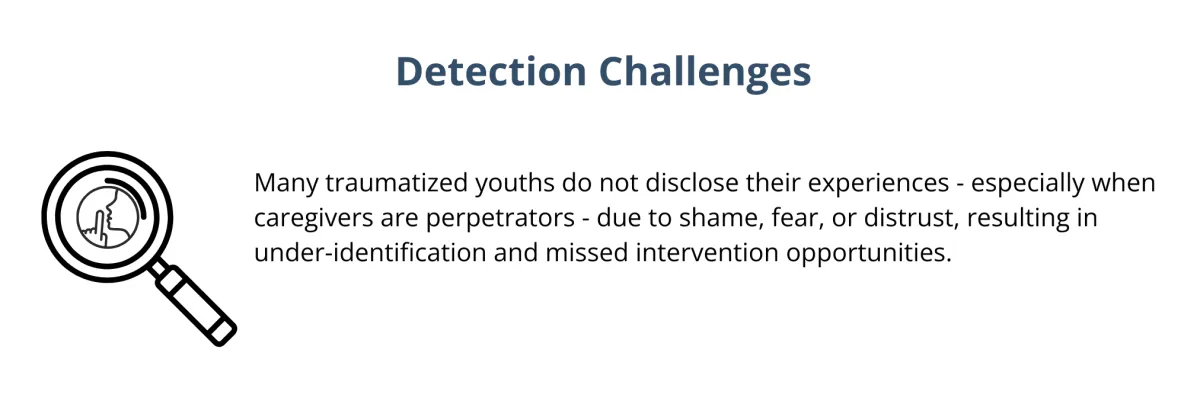
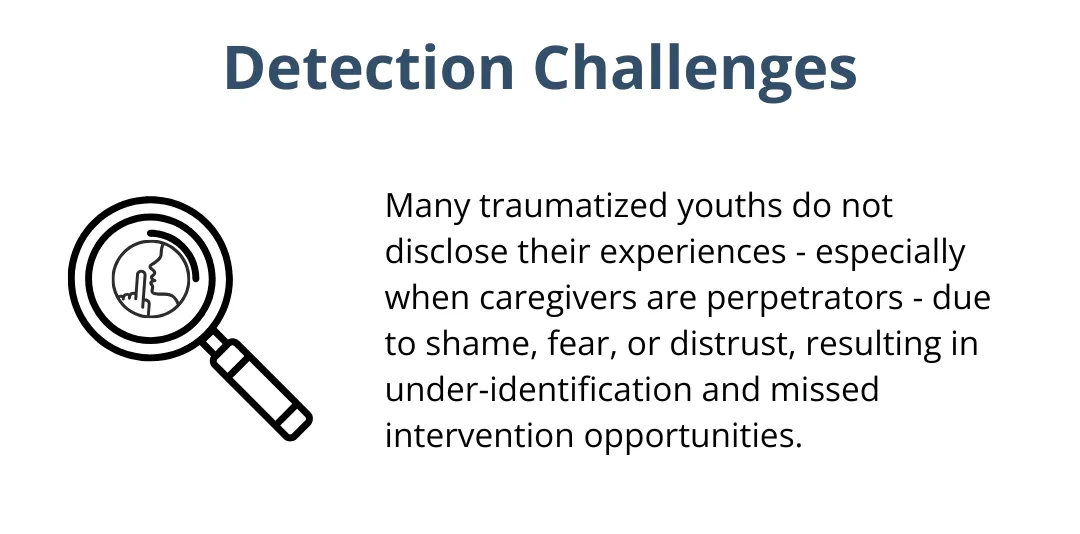

Members working with youth at risk of offending will be bound by clear standards that elevate understanding of adverse childhood experiences and promote early, compassionate intervention:
Require foundational training in adverse childhood experiences and developmental trauma as a condition of membership
Mandate annual continuing professional development on trauma screening, de-escalation, and reflective practice
Oblige quarterly submission of anonymised youth offending data cross-referenced with trauma indicators
Conduct regular audits of member case files to verify consistent application of trauma-informed approaches
Enforce compliance through tailored improvement plans or sanctions for breaches of our trauma-informed standards
Domestic Violence
Definition & Prevalence
Domestic violence includes physical, emotional, sexual, financial, and coercive control within intimate or familial relationships.
It’s not just conflict - it’s a pattern of power, control, and harm.
Survivors often experience chronic trauma, with long-term impacts on mental health, identity, and safety.
In the UK, 1 in 4 women and 1 in 6 men will experience domestic abuse in their lifetime.
Trauma Links & Psychological Impact
Survivors may live in a constant state of threat, triggering fight-freeze-appease responses.
Trauma can lead to:
Hypervigilance, anxiety, and dissociation
Self-blame, shame, and difficulty trusting others
Survival-based behaviours (appeasement, silence, withdrawal) that are often misunderstood by professionals
Repeated exposure to abuse can result in Complex PTSD, especially when escape isn’t possible.

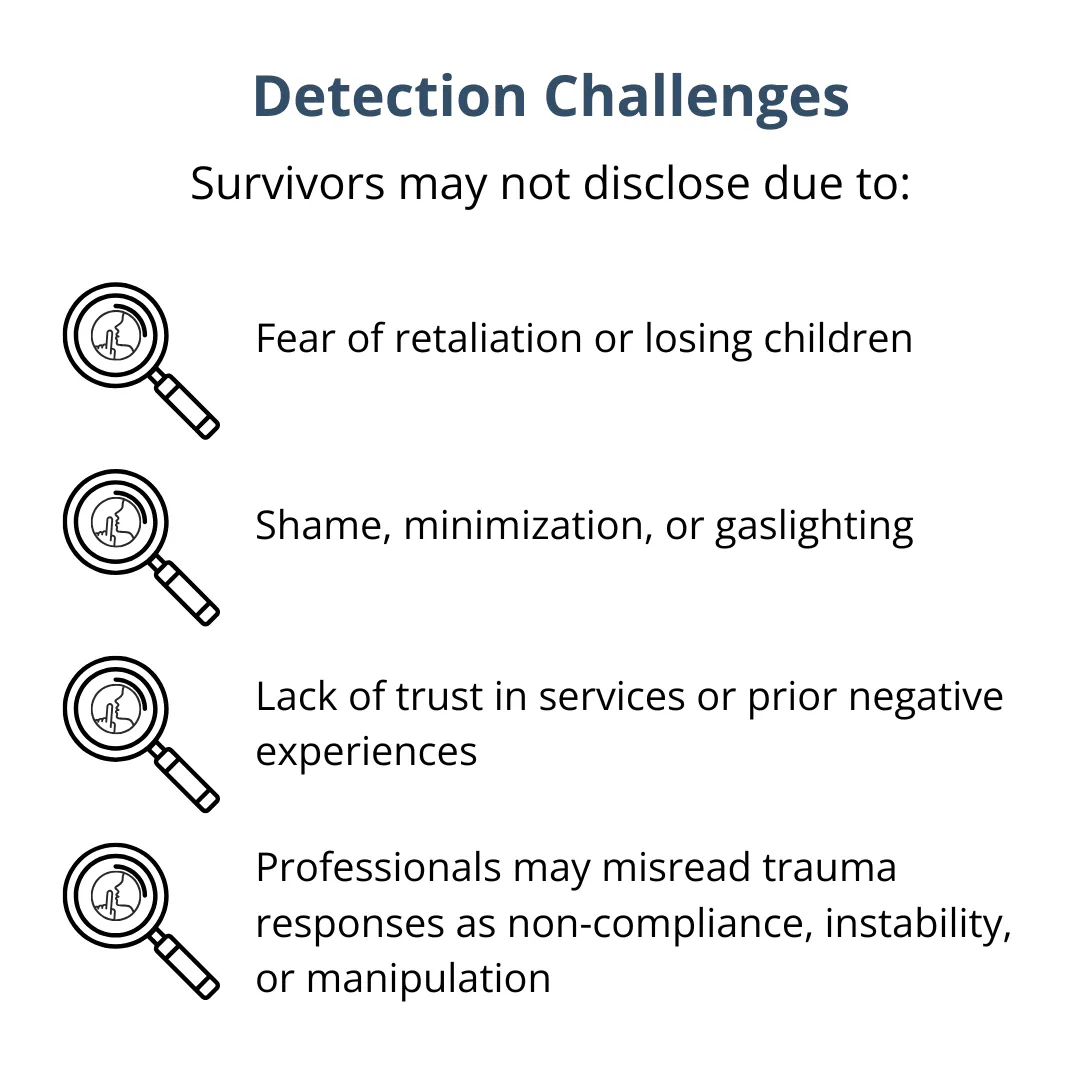
Childhood Trauma & Perpetration of Domestic Violence
Early Trauma as a Risk Factor
Early Trauma as a Risk Factor
Childhood Trauma, including abuse, neglect, emotional maltreatment, and exposure to violence - can disrupt emotional regulation, attachment formation, and relational development
Studies show that men convicted of violence or sexual offences report four times as many distressing childhood events compared to men in the general population
Psychological Mechanisms
Psychological Mechanisms
Internalised relationship dynamics: Children exposed to abuse may normalise manipulation, control, or aggression as relational tools
Suppressed rage and emotional dysregulation: Unprocessed trauma can manifest as anger outbursts, emotional numbing, or violence in childhood
Antisocial pathways: Childhood abuse increases the risk of adult offending by fostering antisocial behaviour and relationships with similarly affected peers
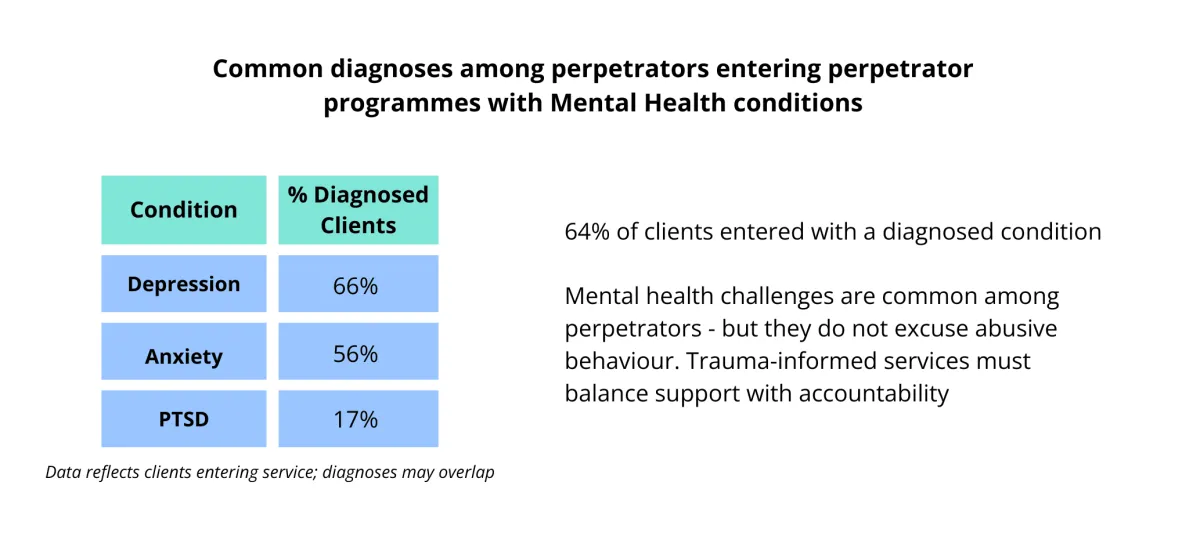
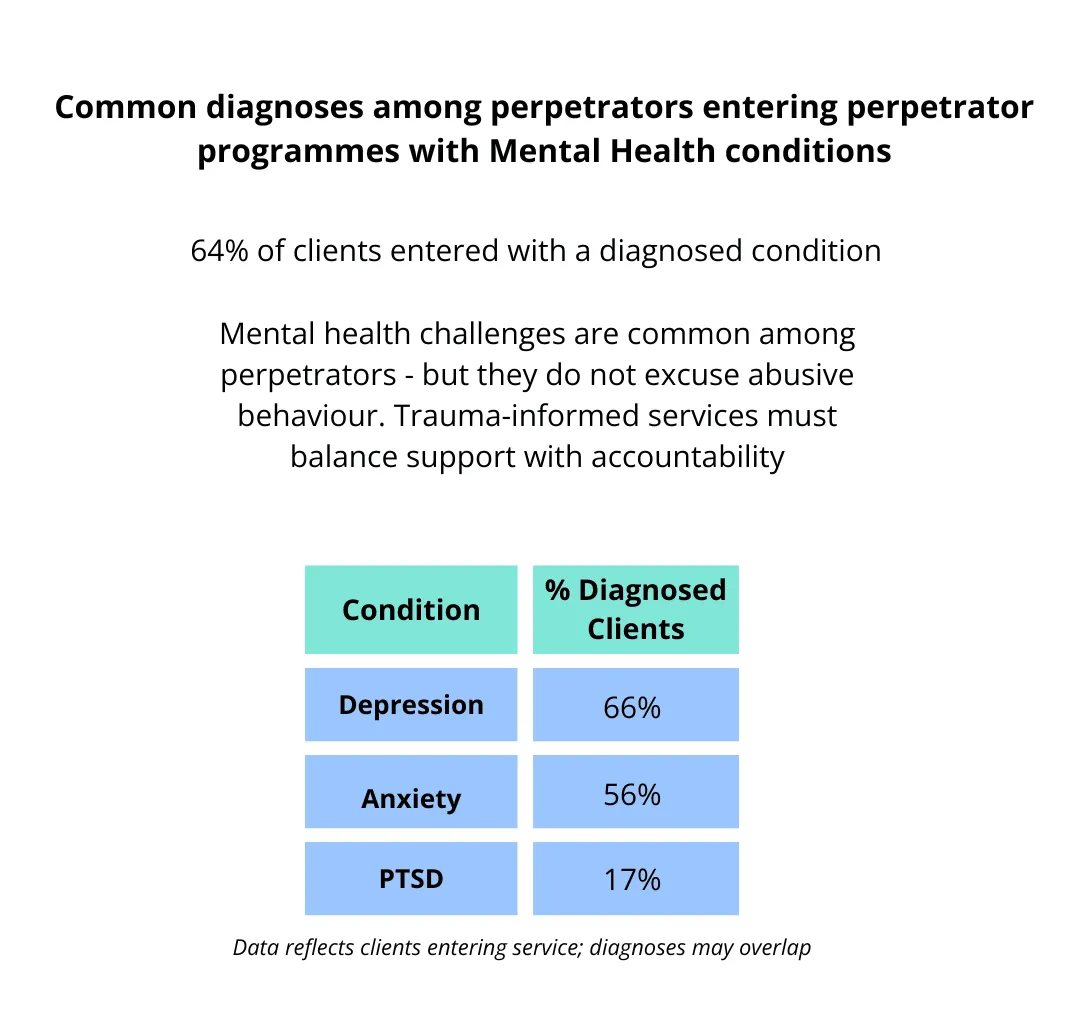
Trauma-informed Work with Perpetrators
Trauma-informed Work with Perpetrators
Effective interventions must address underlying trauma and neurobiological wounds, not just behaviour
Trauma-informed approaches:
Recognise mental health needs while holding perpetrators accountable
Aim to break cycles of violence without re-traumatising victims

TRB Public Protection: Safeguarding DV Victims, Public Safety & Perpetrator Rehabilitation:
Tiered trauma-informed training ensures practitioners can identify and support survivors of domestic violence
Enforcing trauma-informed practice standards to detect perpetration risk early, mandate accredited rehabilitation referrals, and monitor outcomes continuously to safeguard communities
By regulating every member’s trauma-informed practice, the TRB embeds rigorous oversight and quality assurance - so survivors receive expert care, the public benefits from proactive risk management, and perpetrators engage in structured, evidence-based rehabilitation
Join The TRB Now
Become a Trauma-Focused Professional
Join the TRB Mailing List
Receive trauma-informed insights, practitioner updates, and exclusive newsletters directly to your inbox

© 2026 Trauma Regulation Board - All Rights Reserved │ Privacy Policy │Terms & Conditions
The Trauma Regulation Board operates under a non-exclusive licence from The Fairhurst Foundation LLC for the use of all trauma frameworks, models, assessment tools and educational content.
